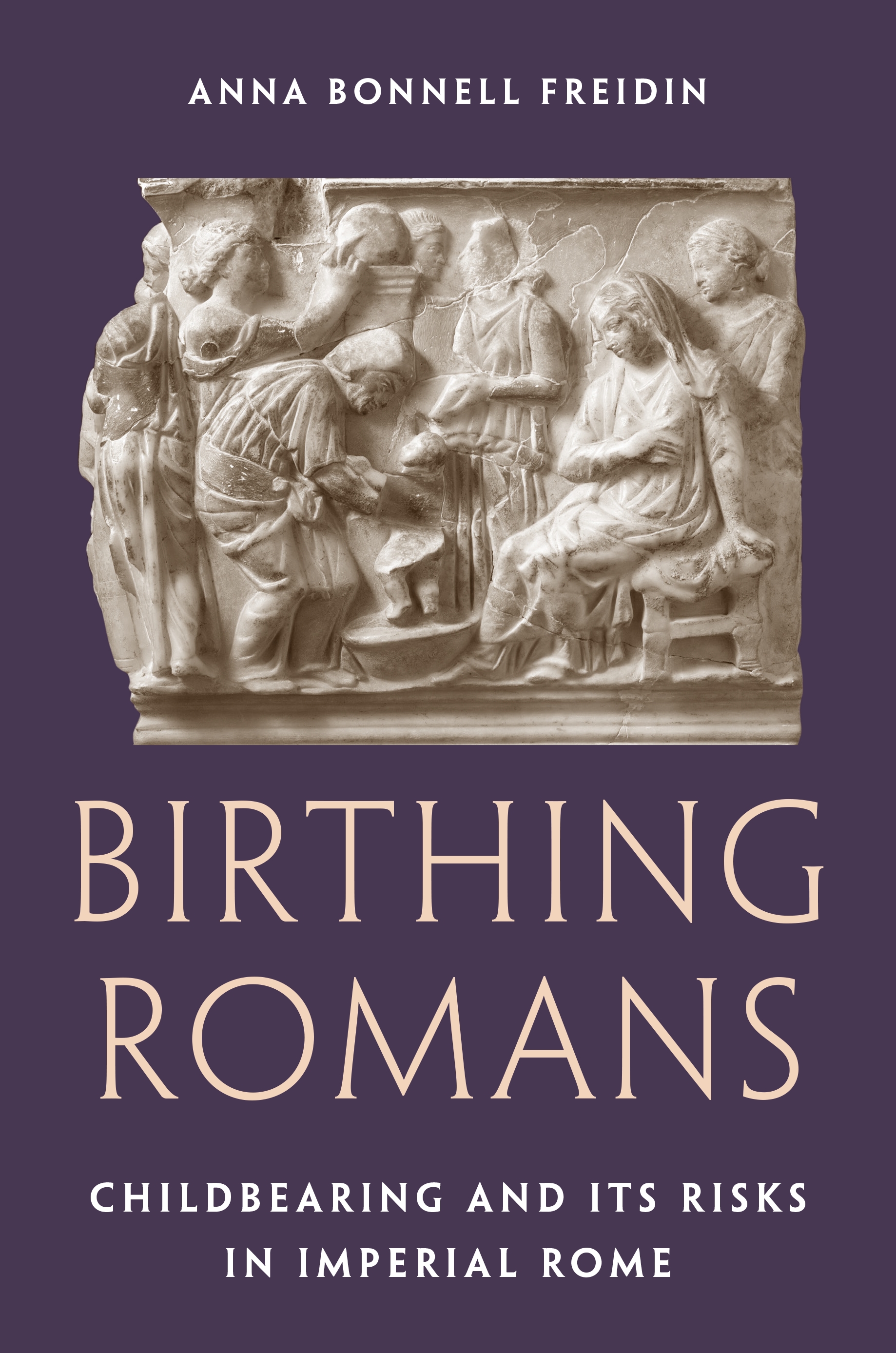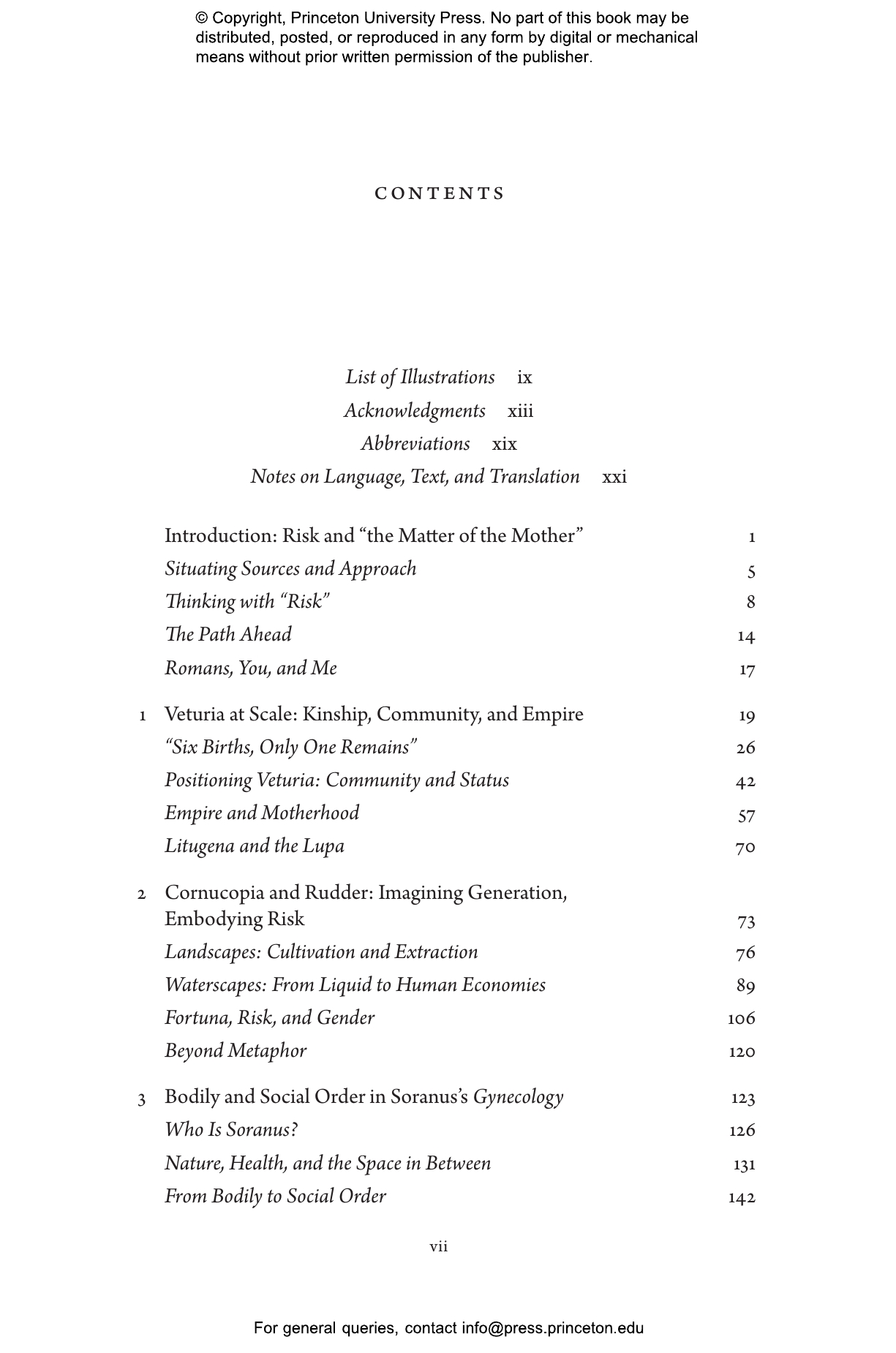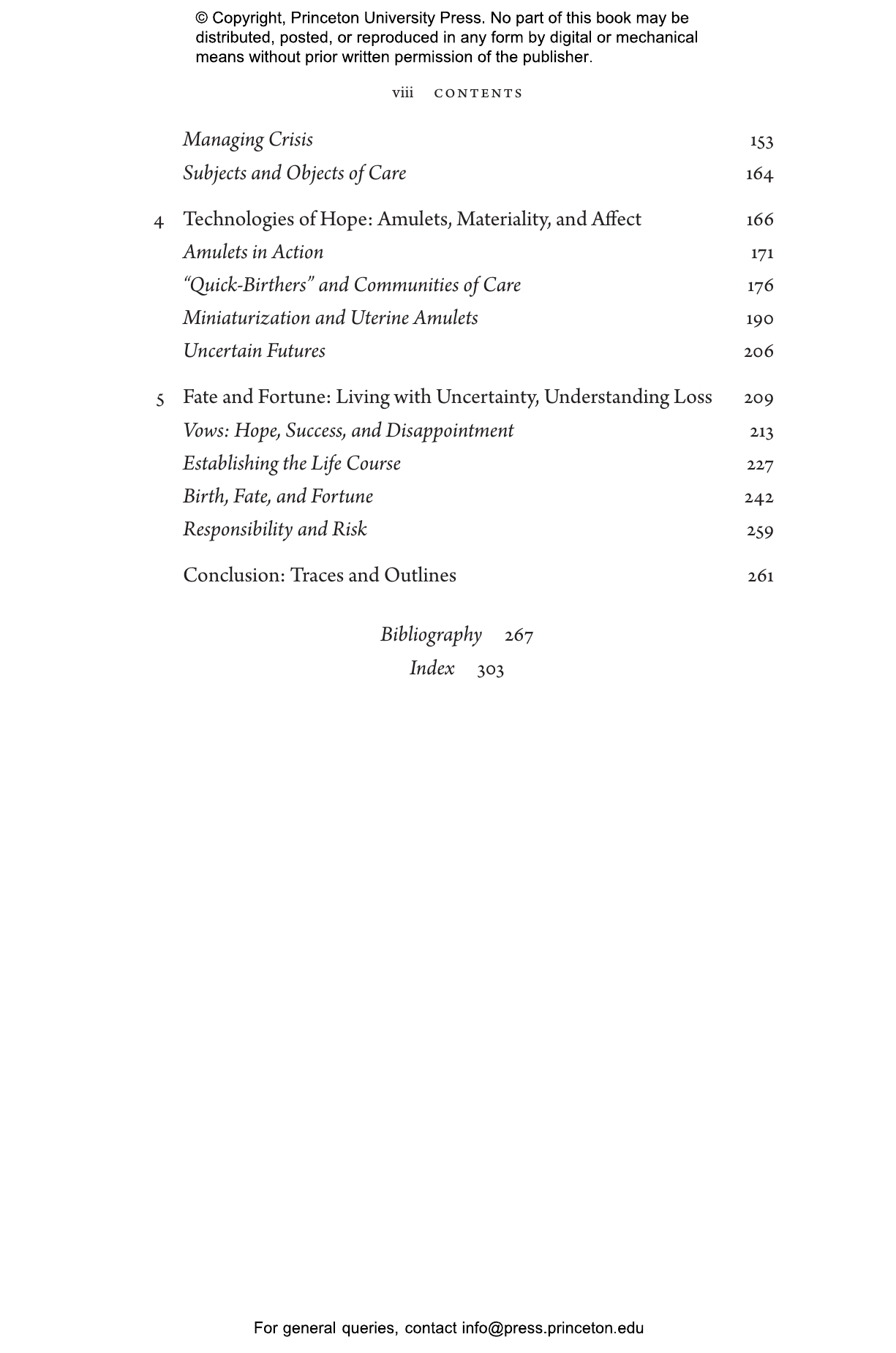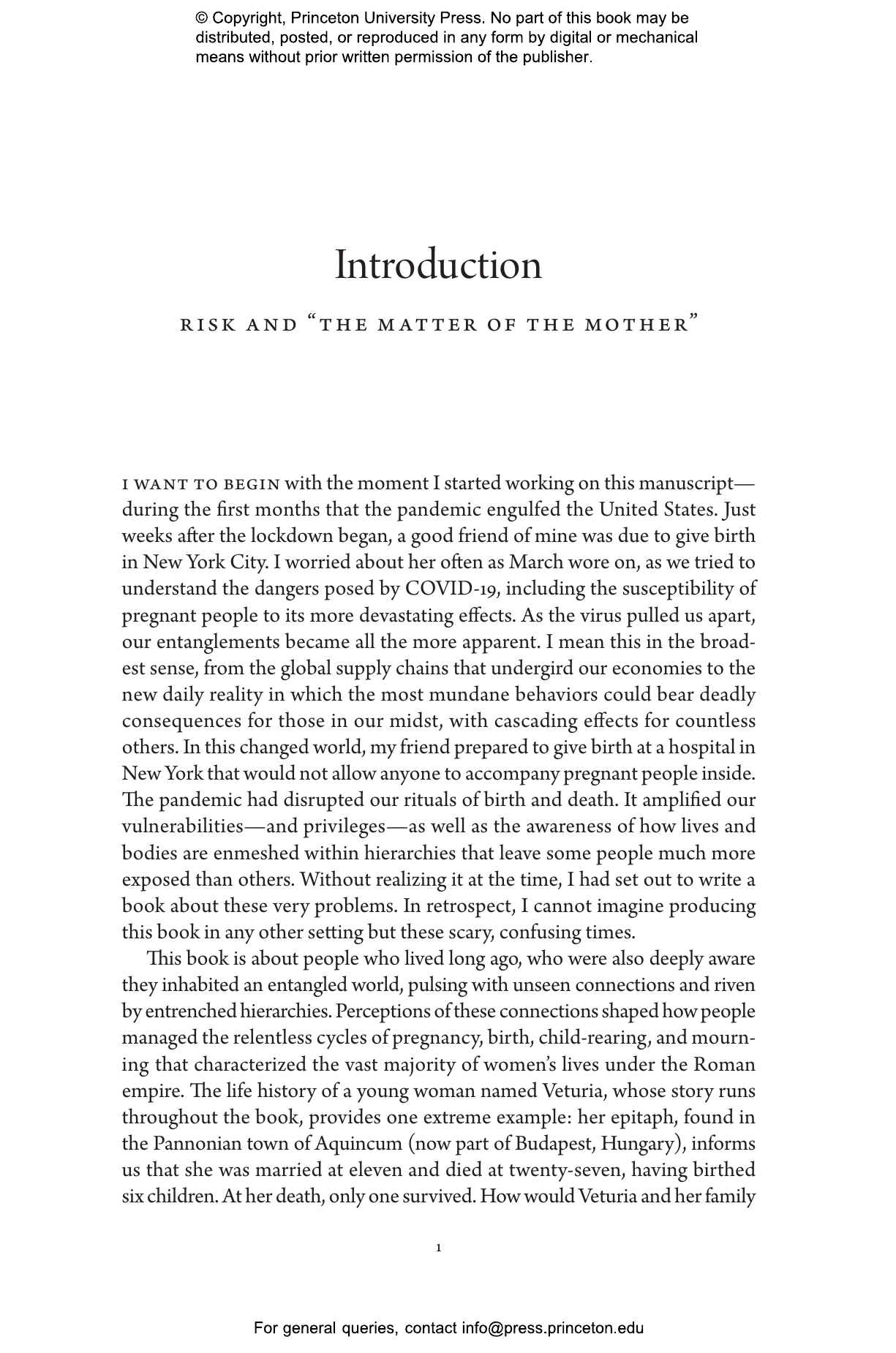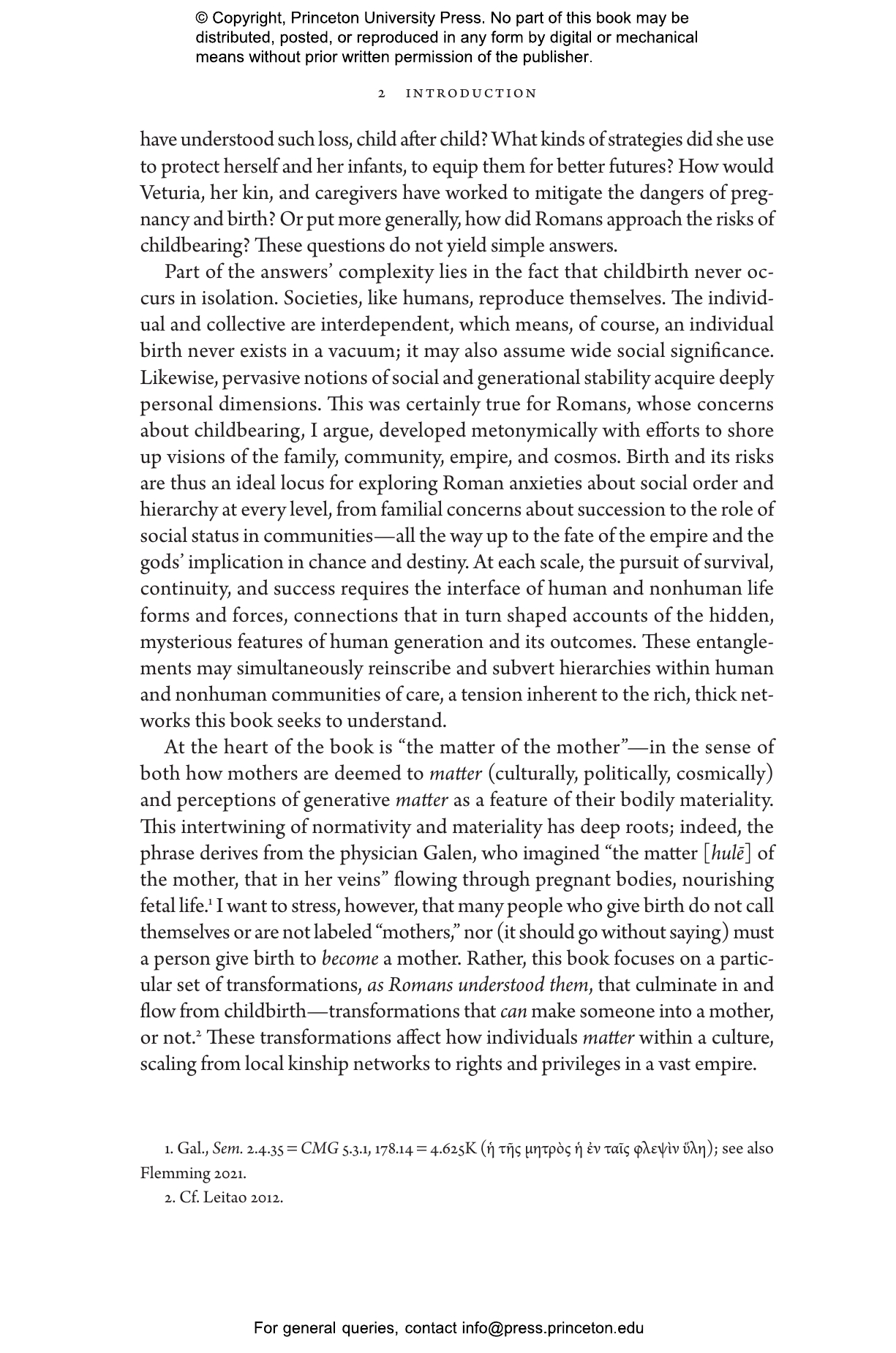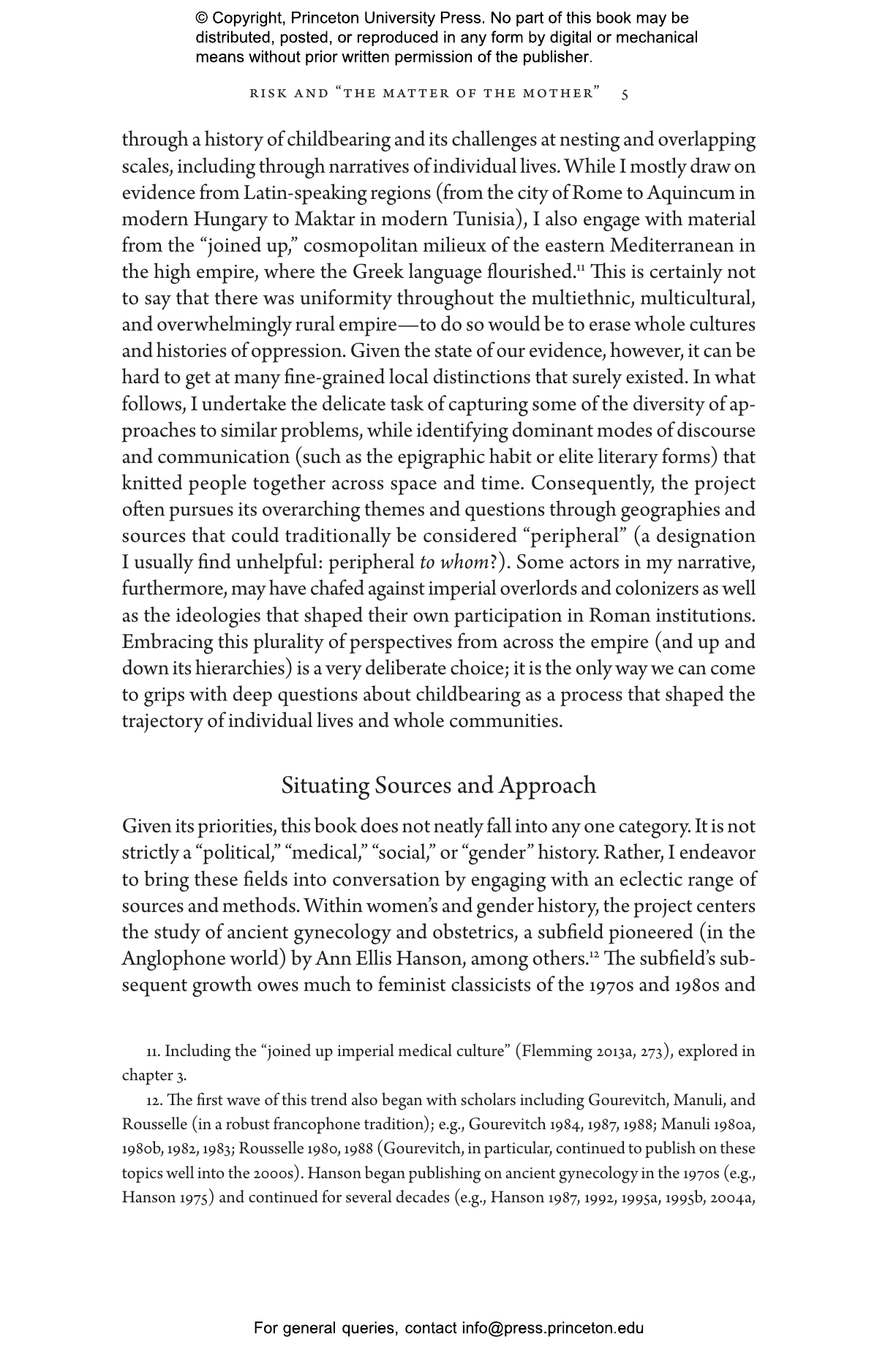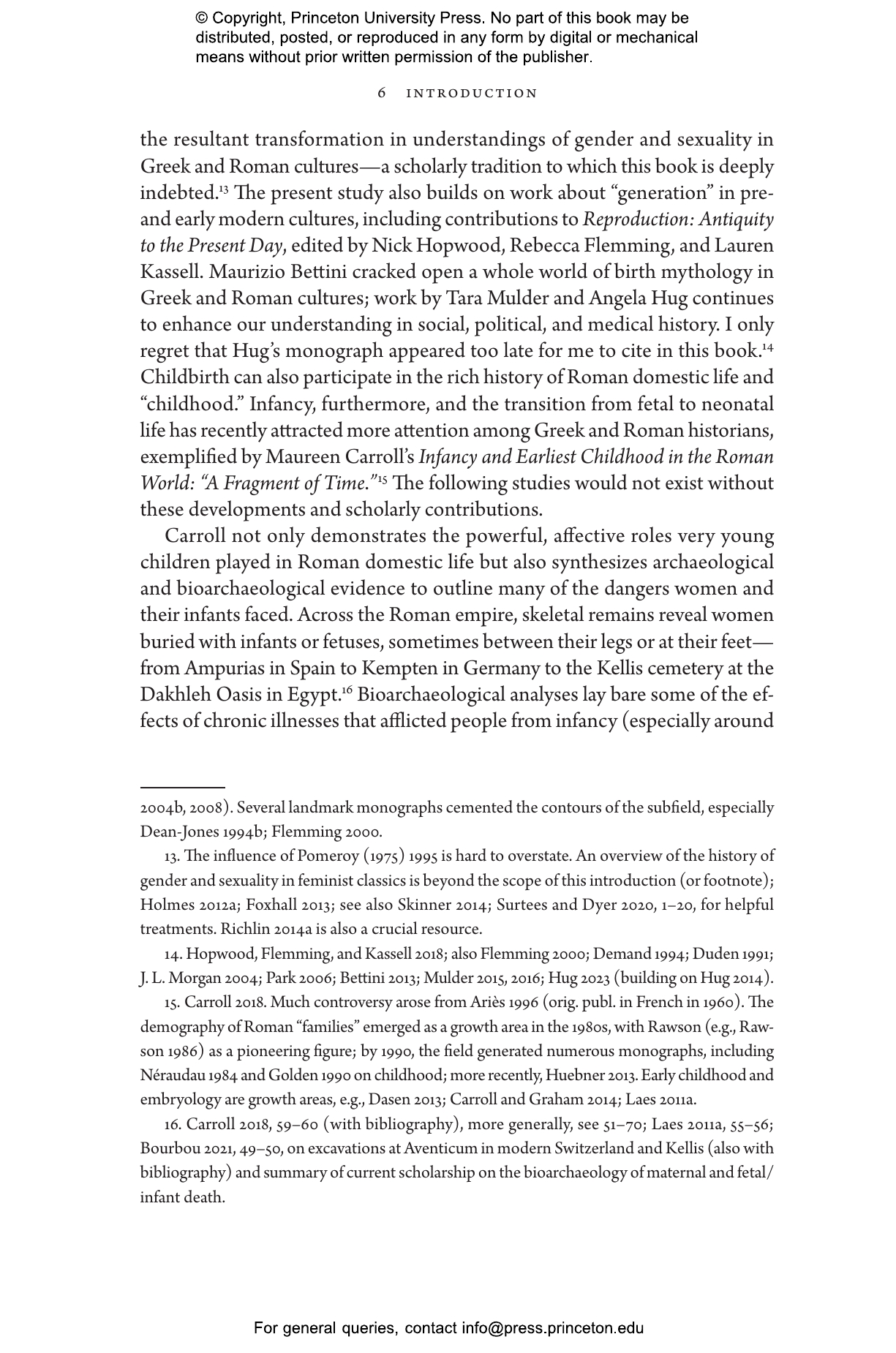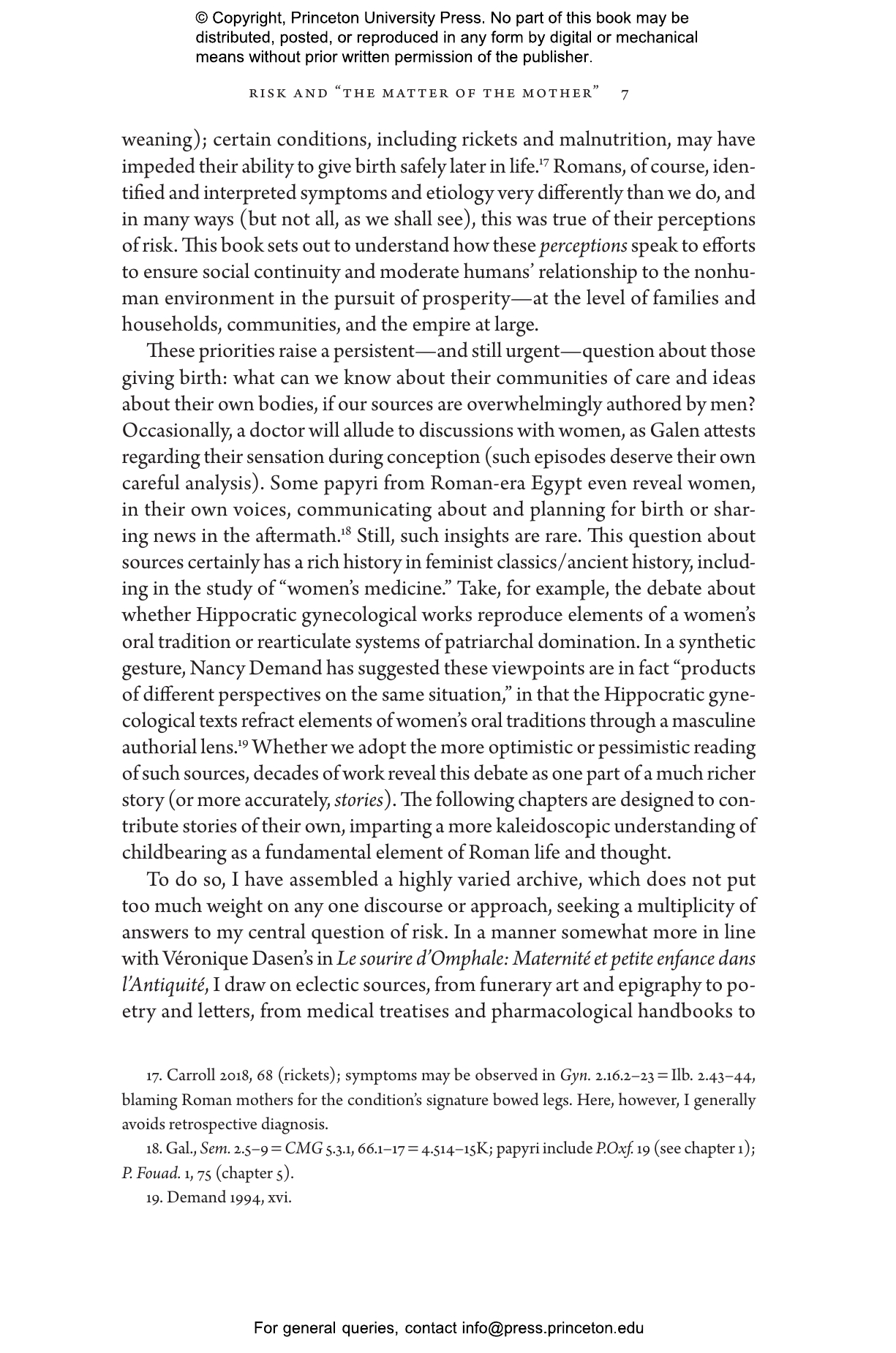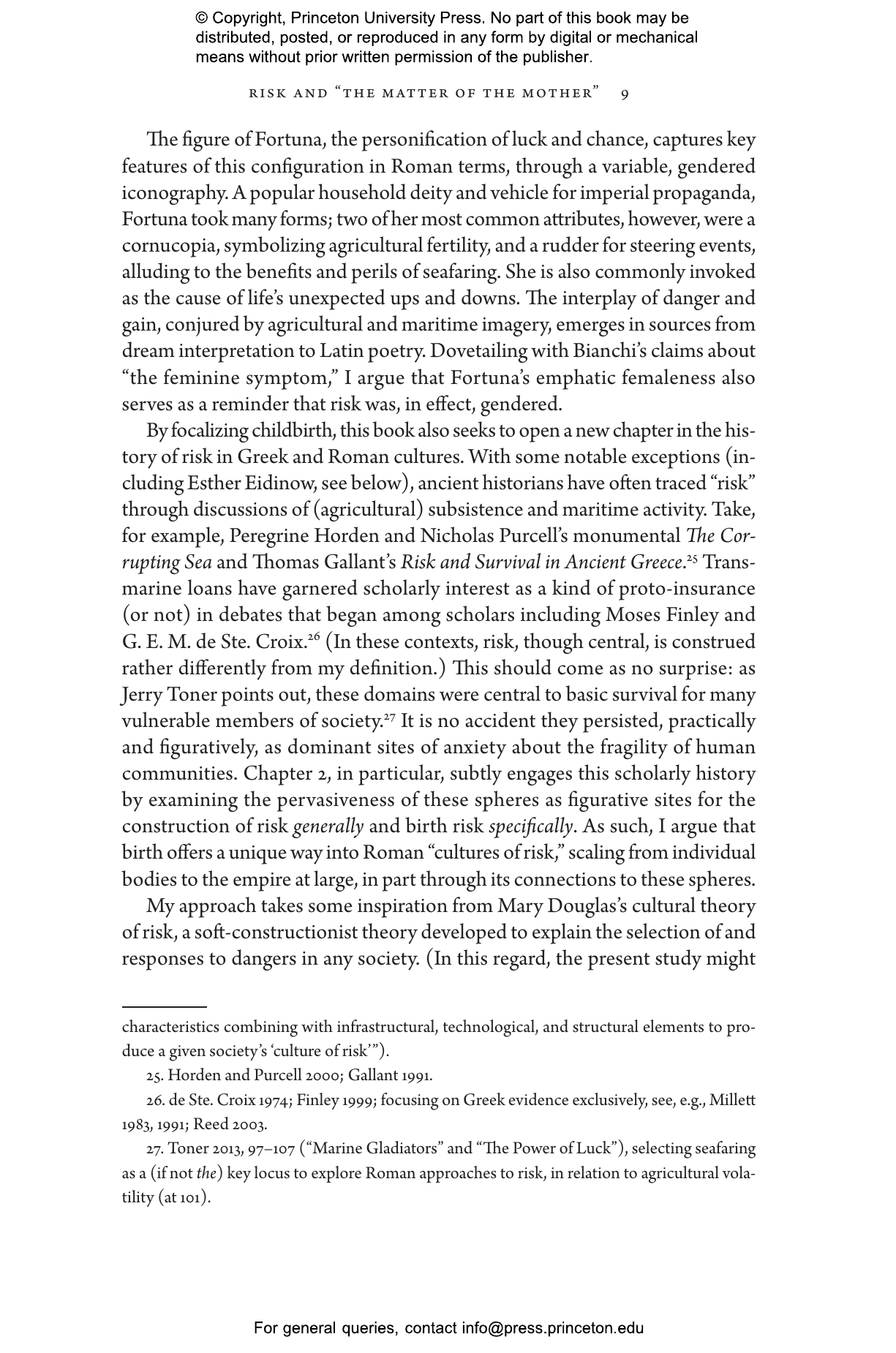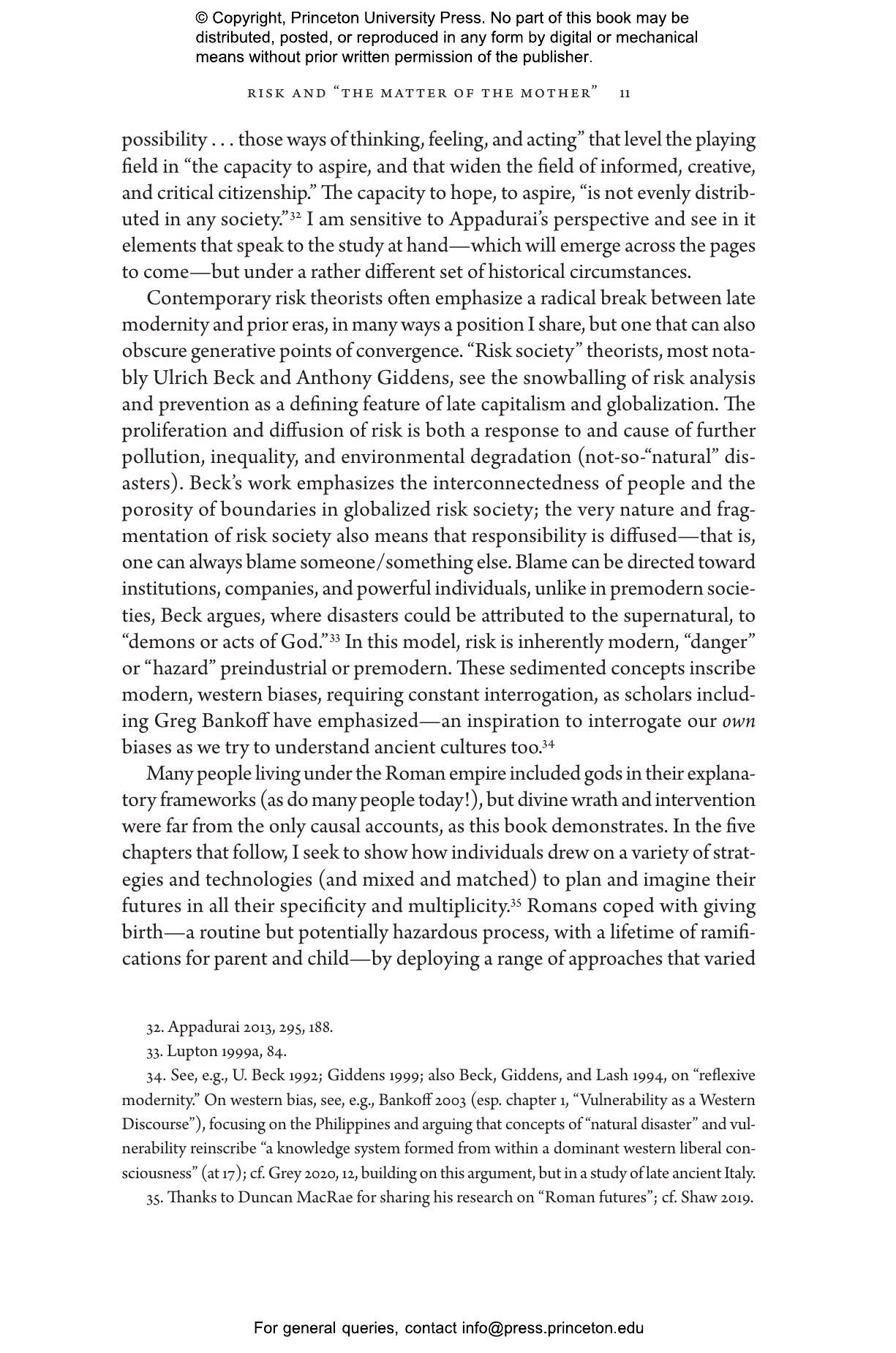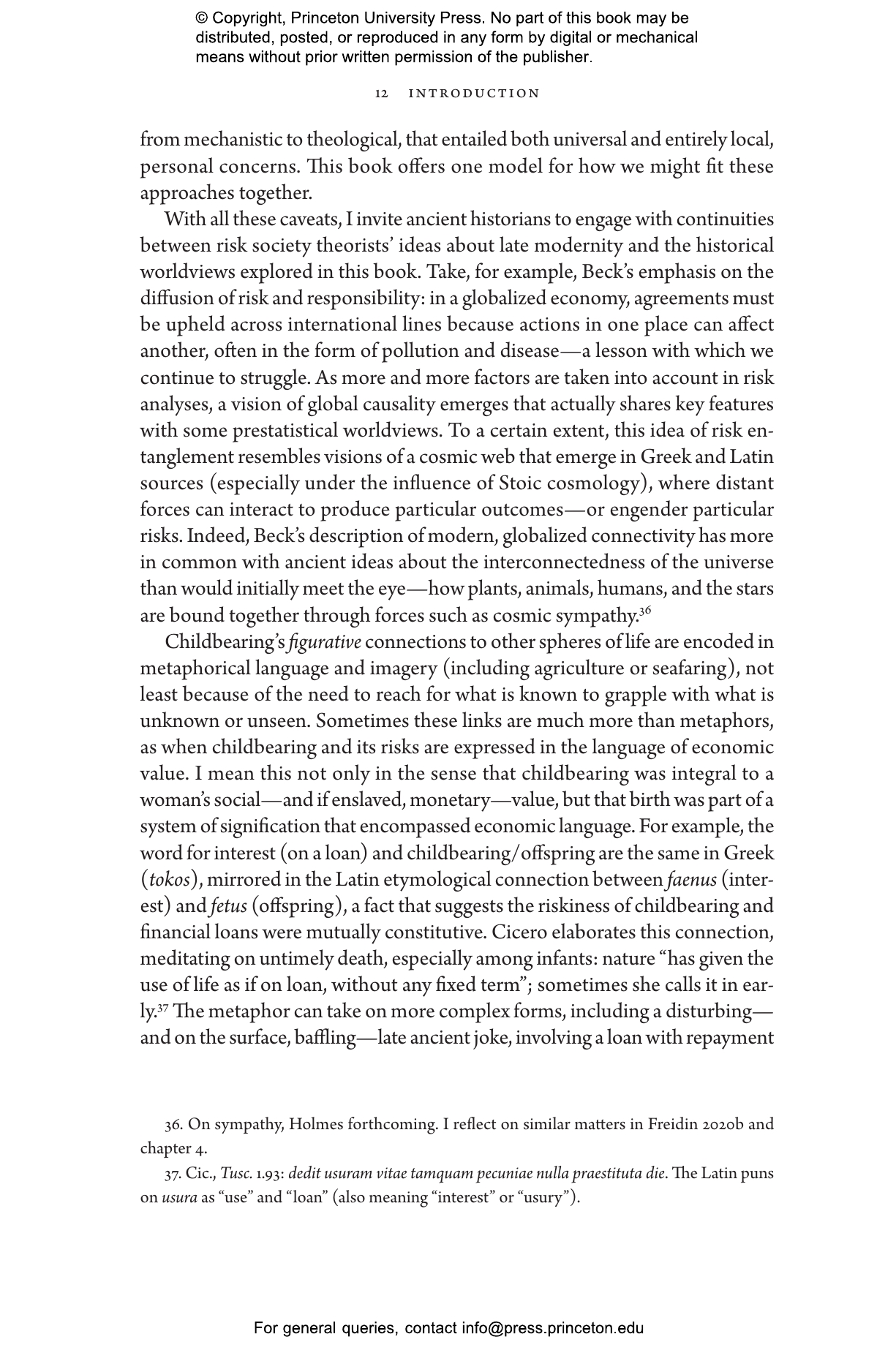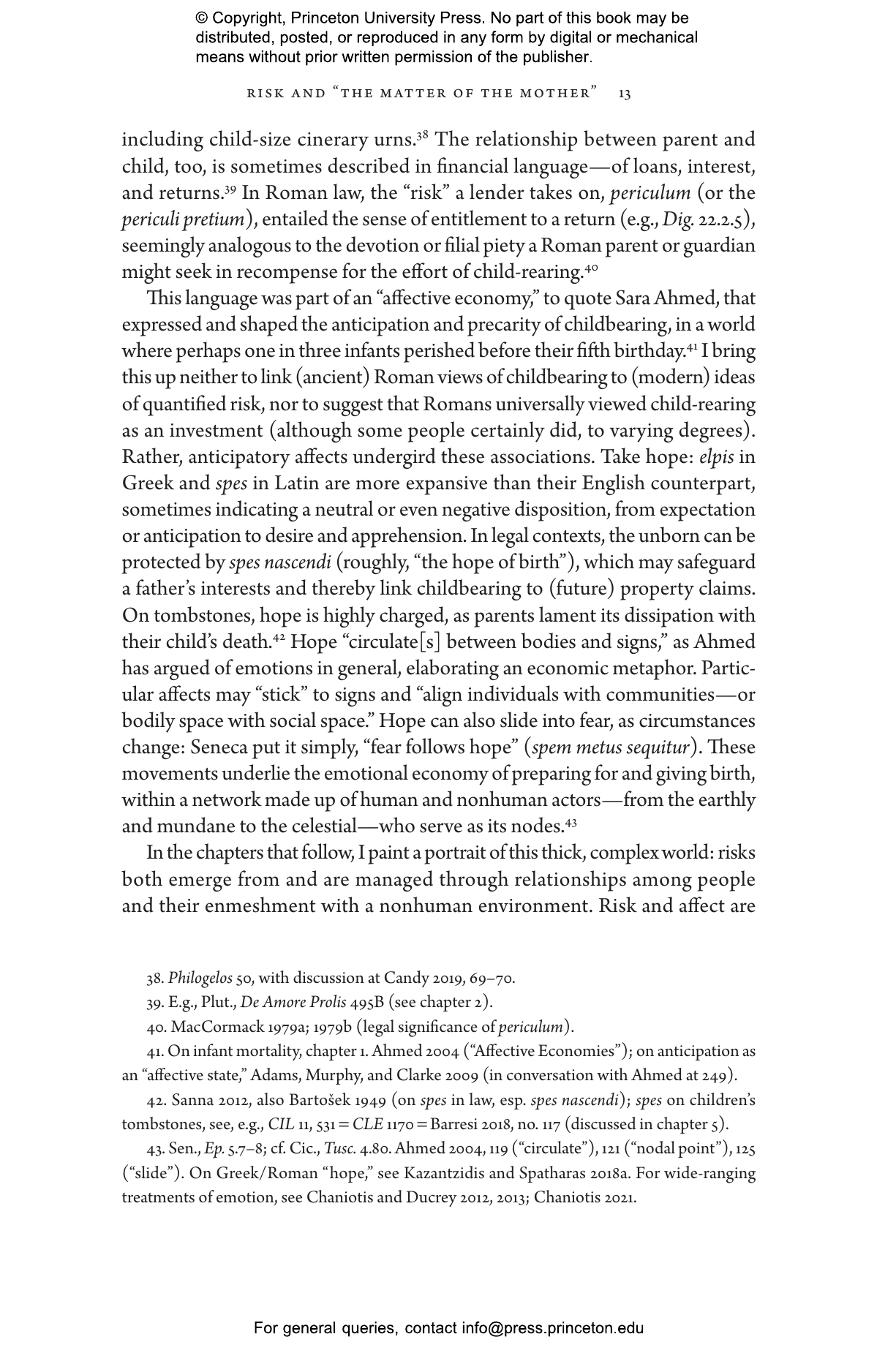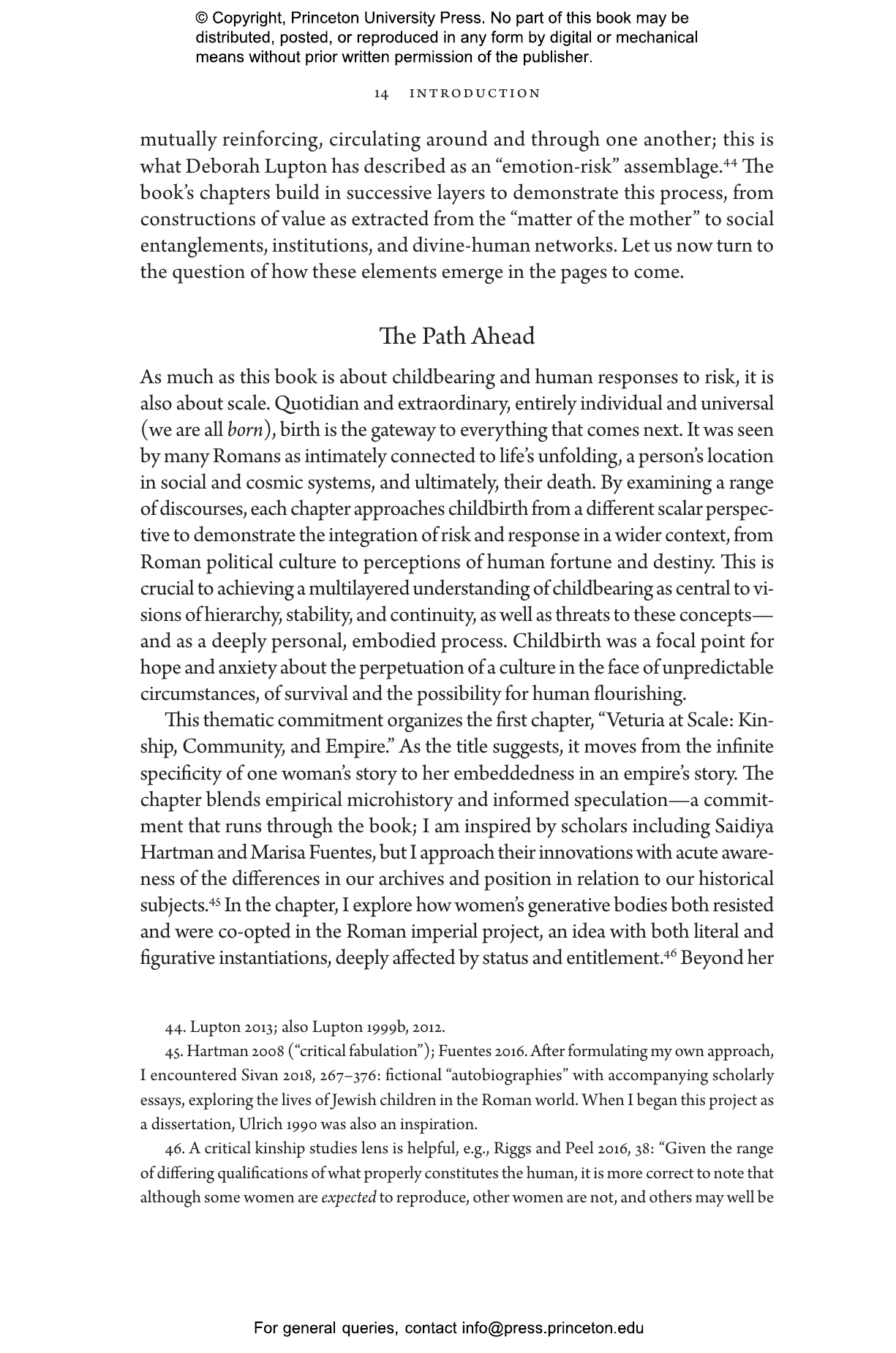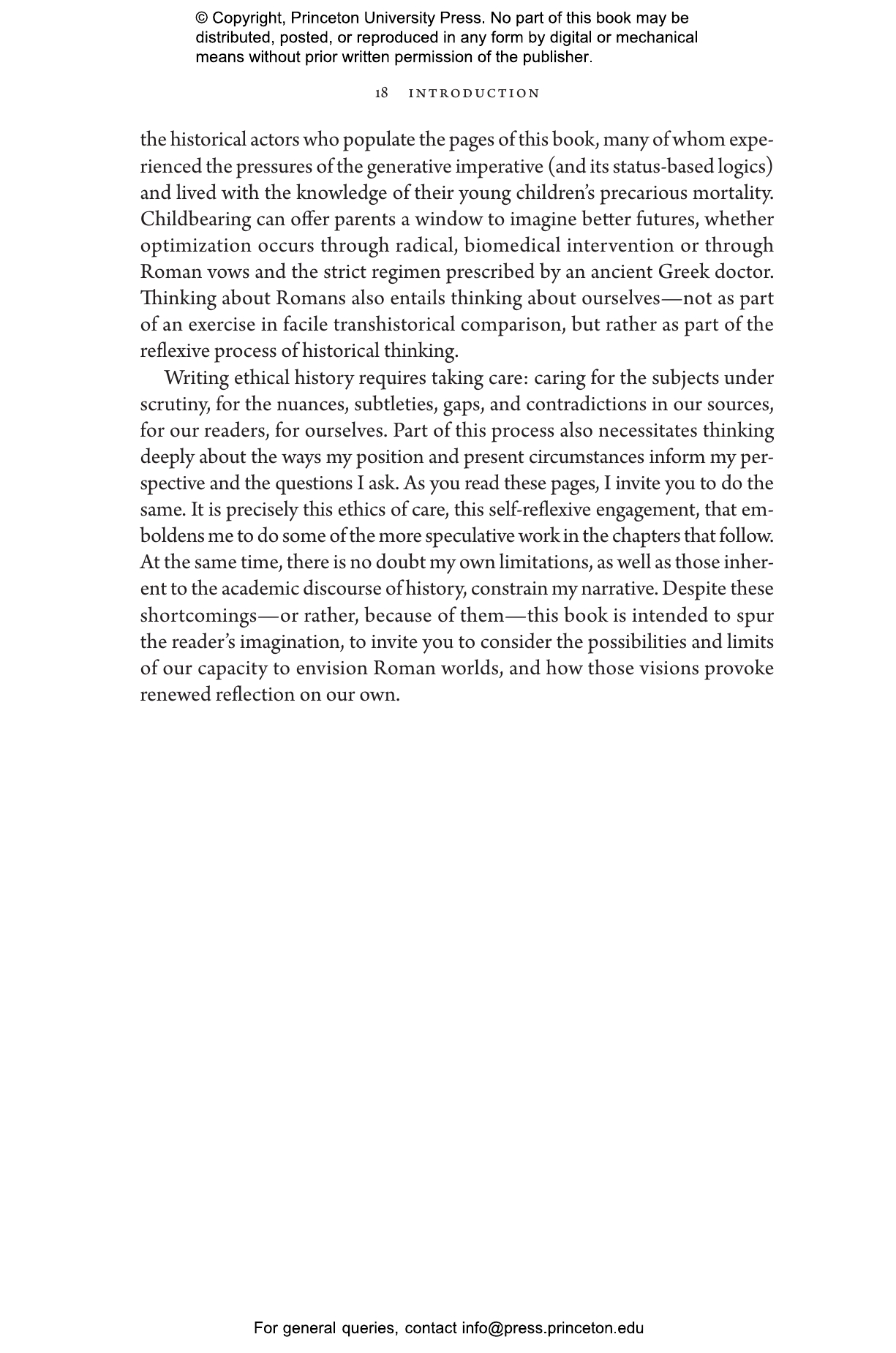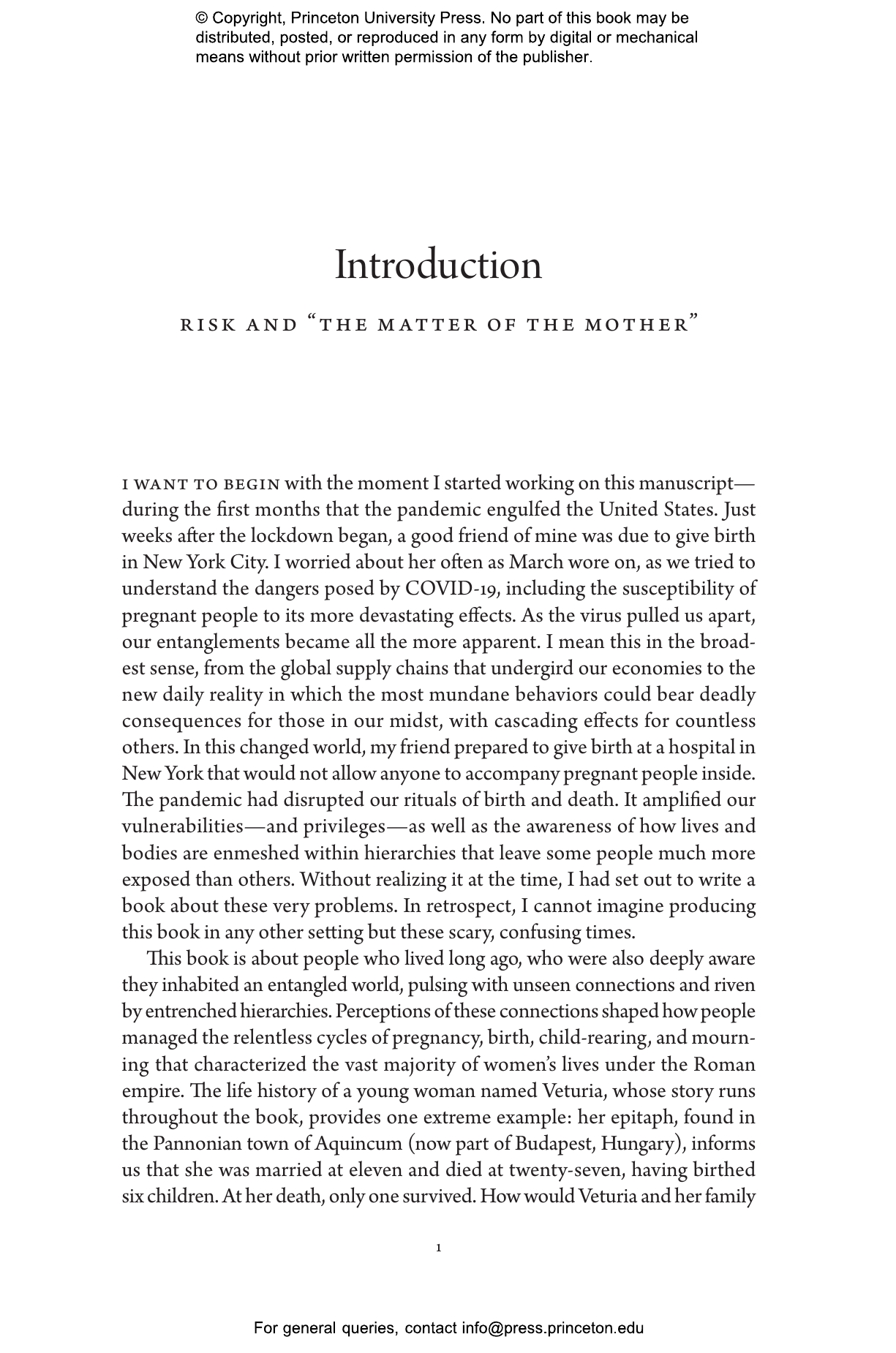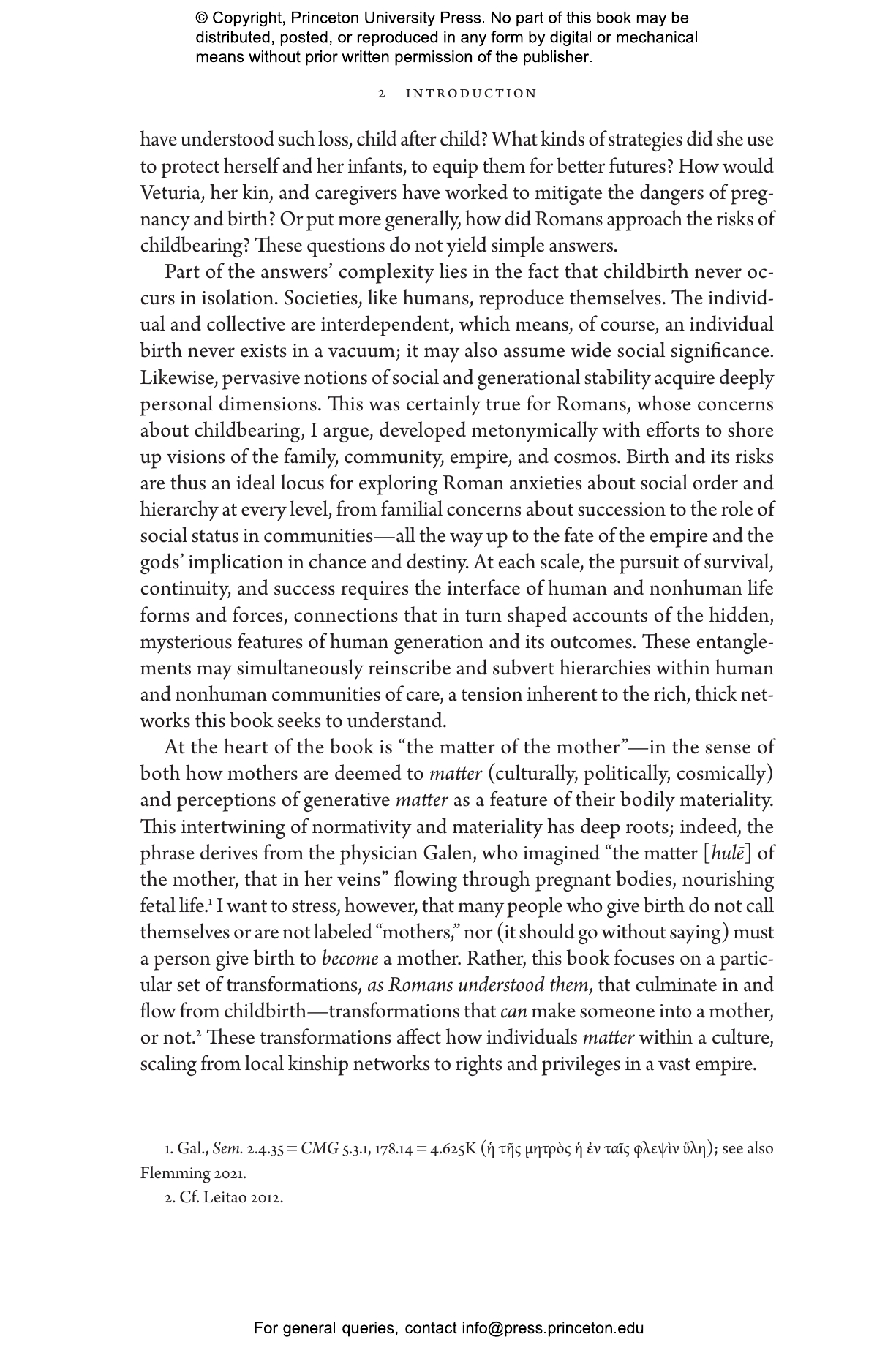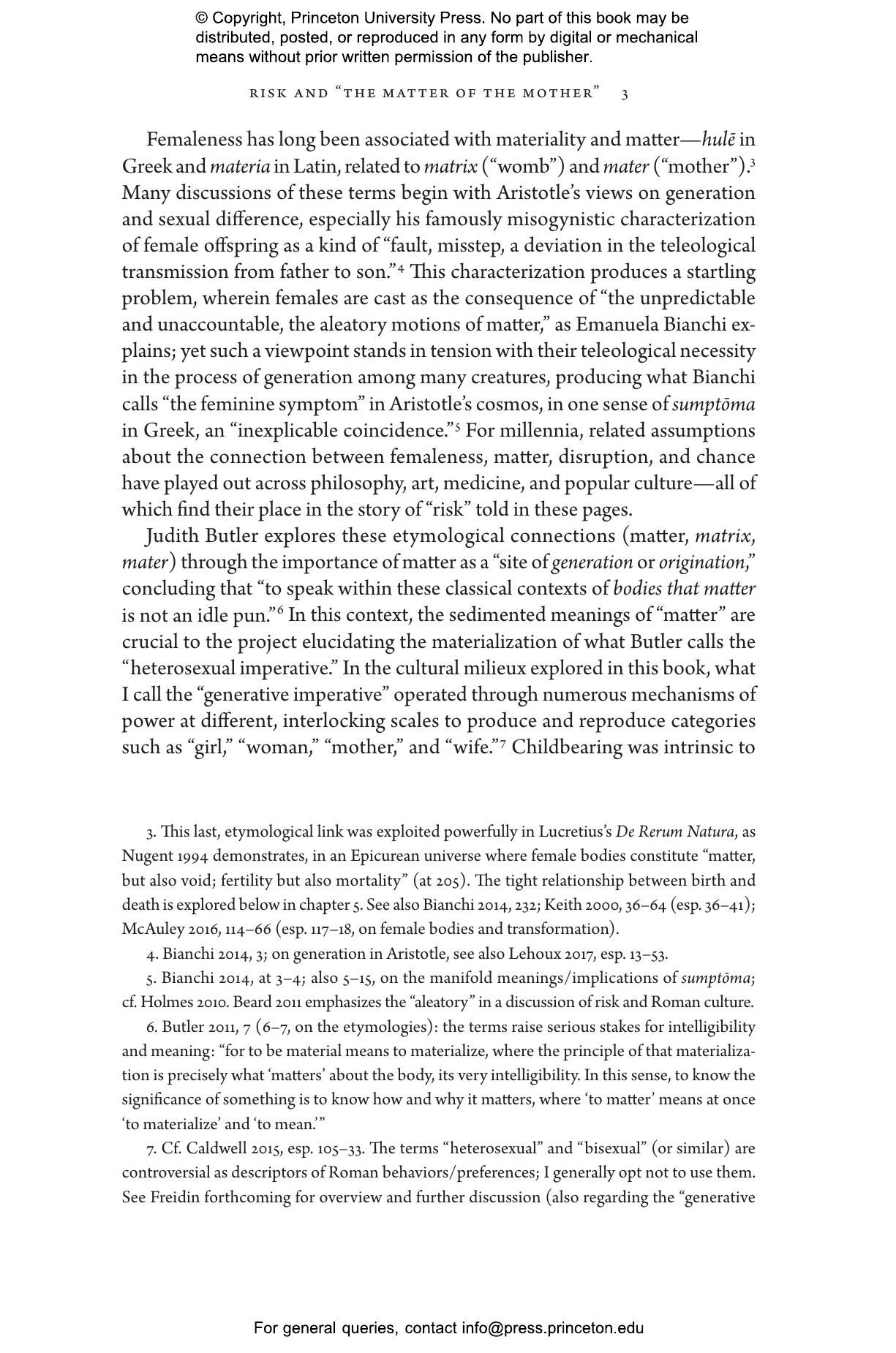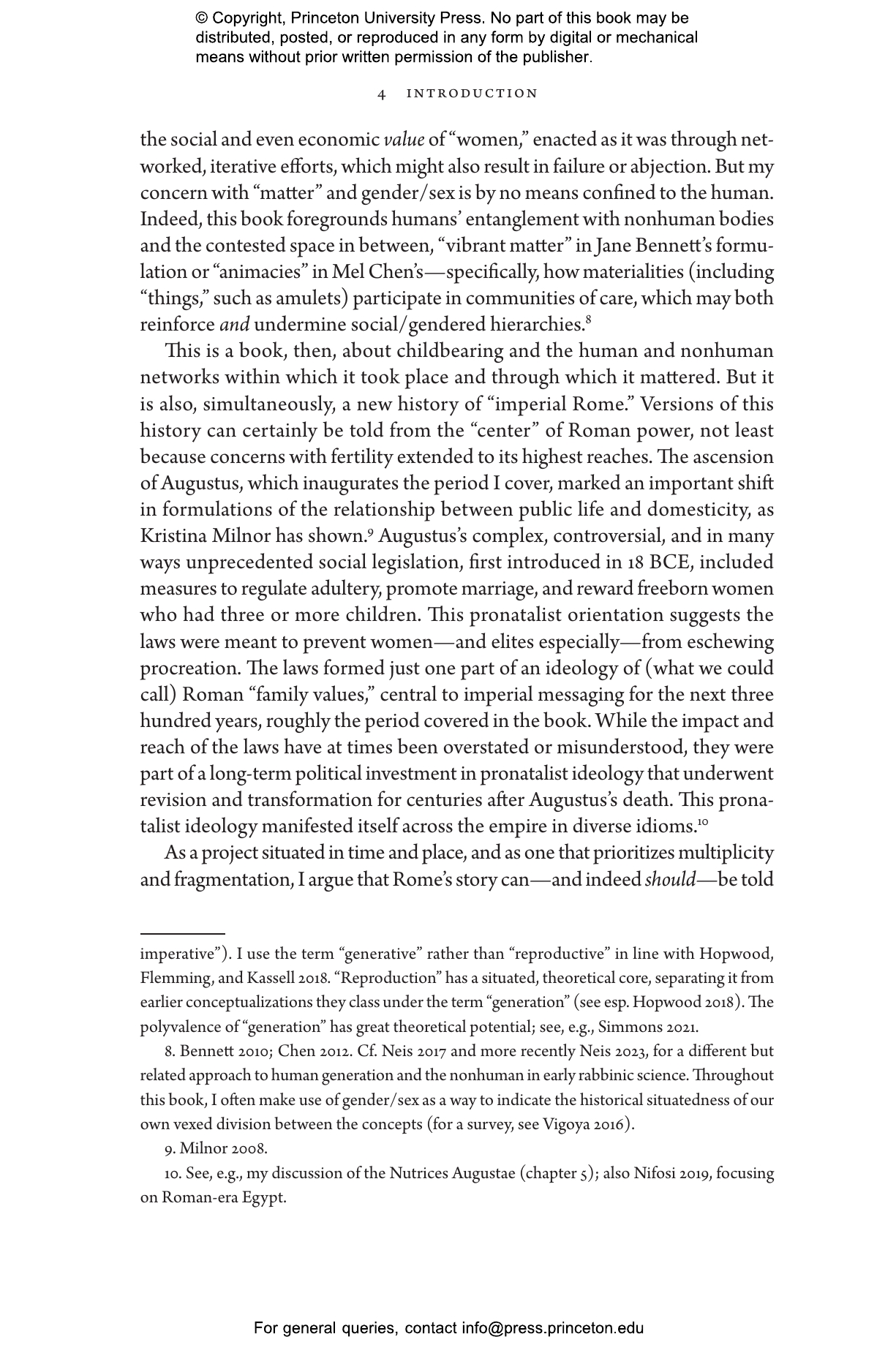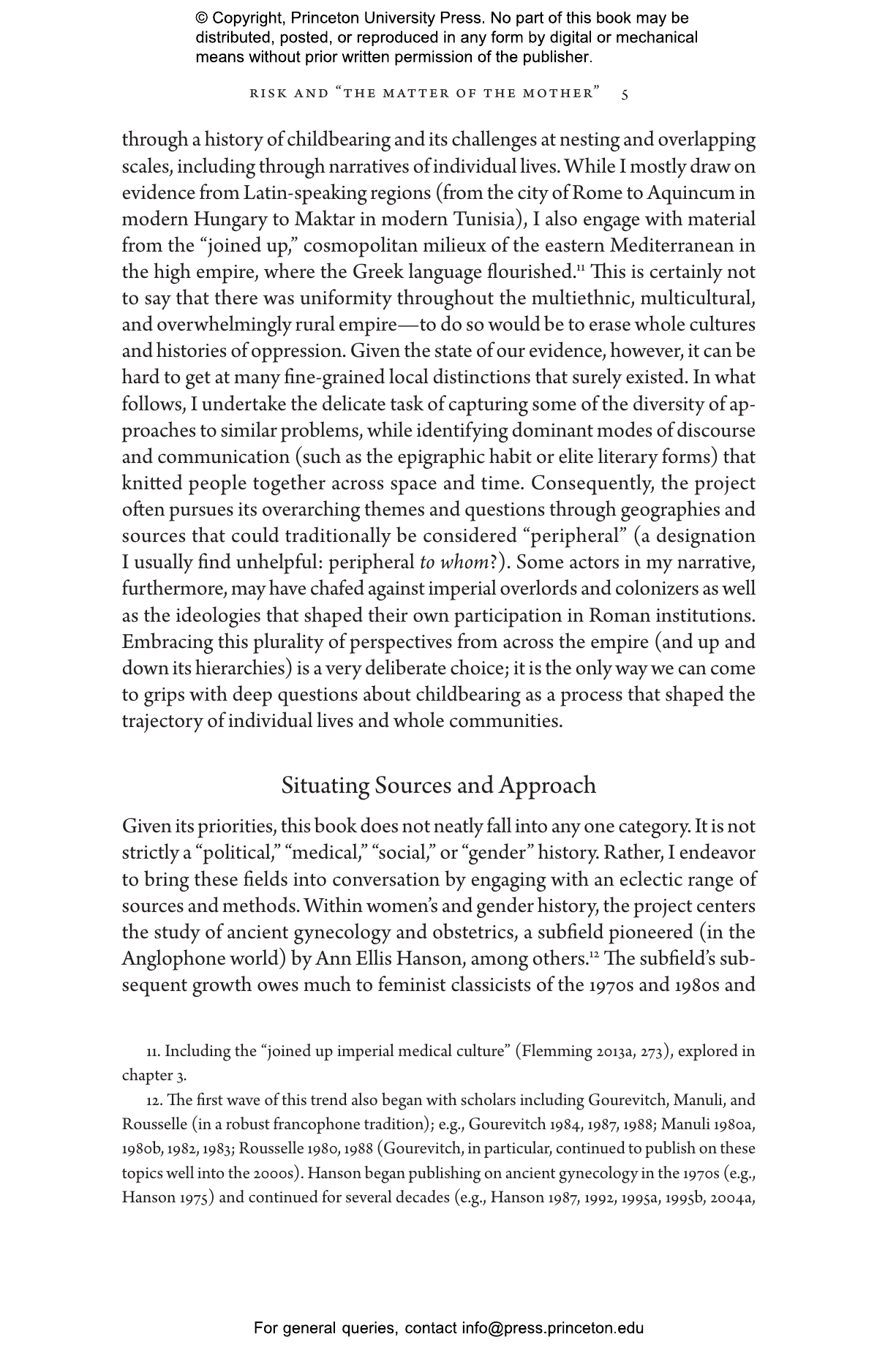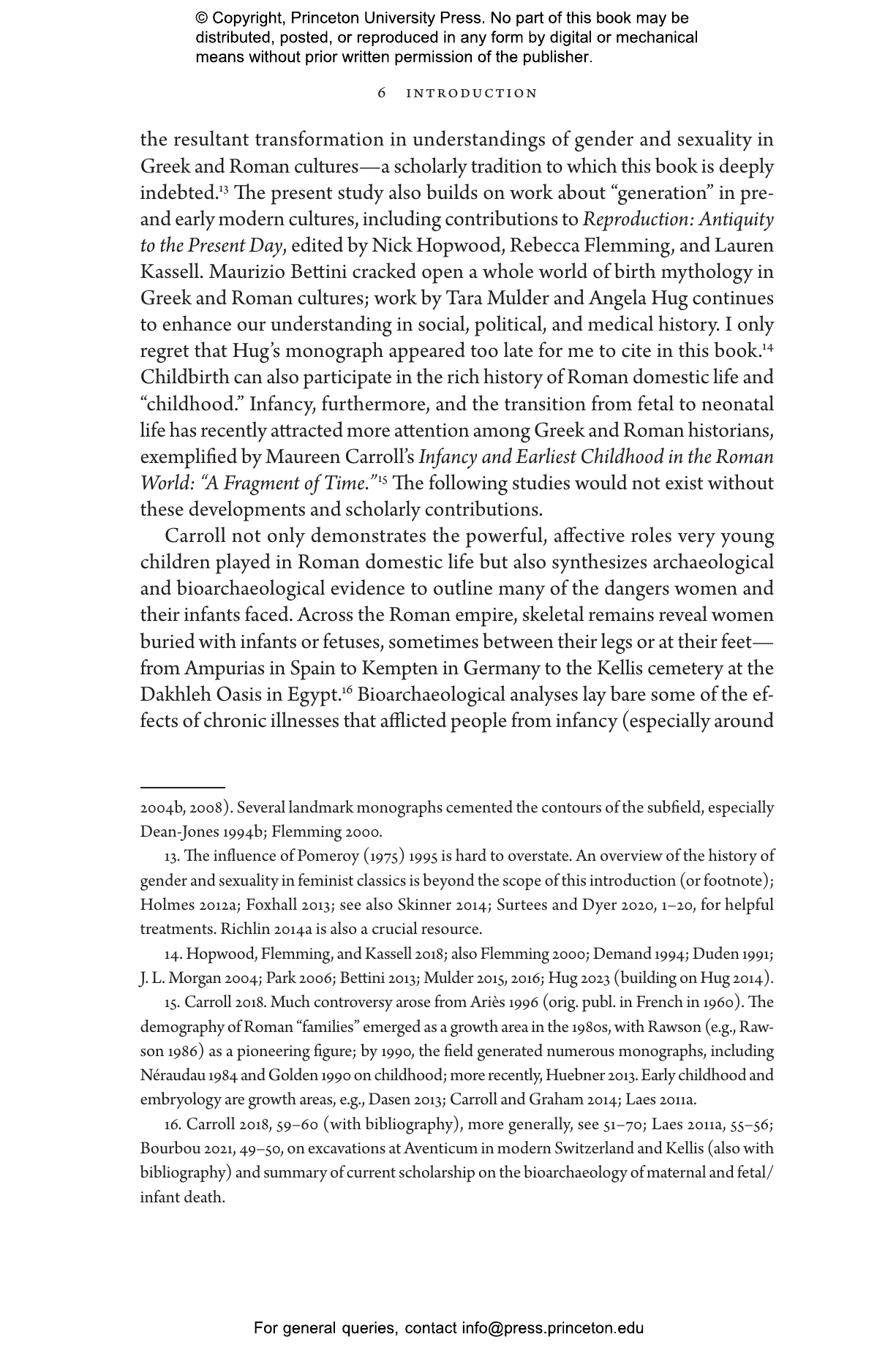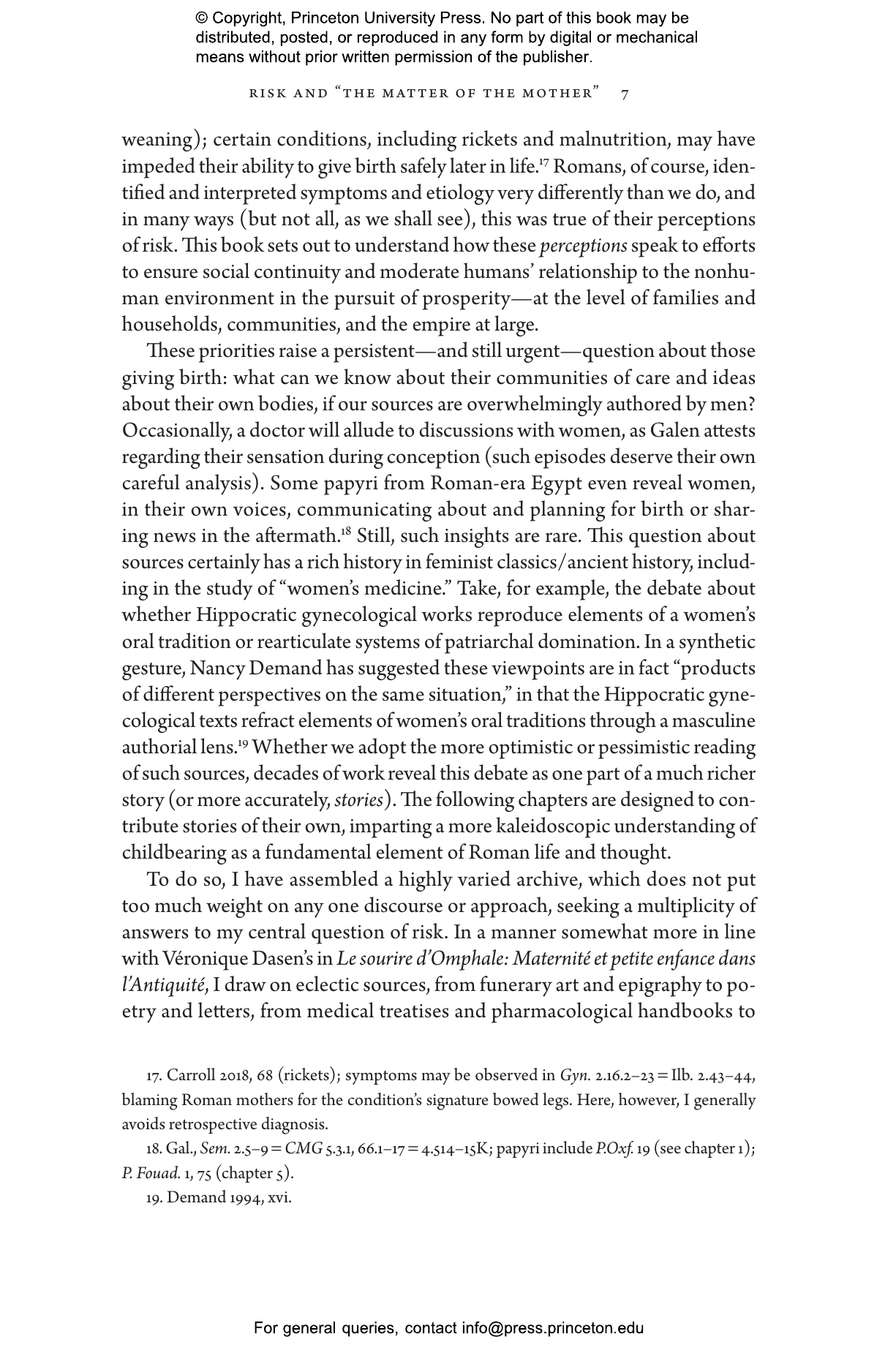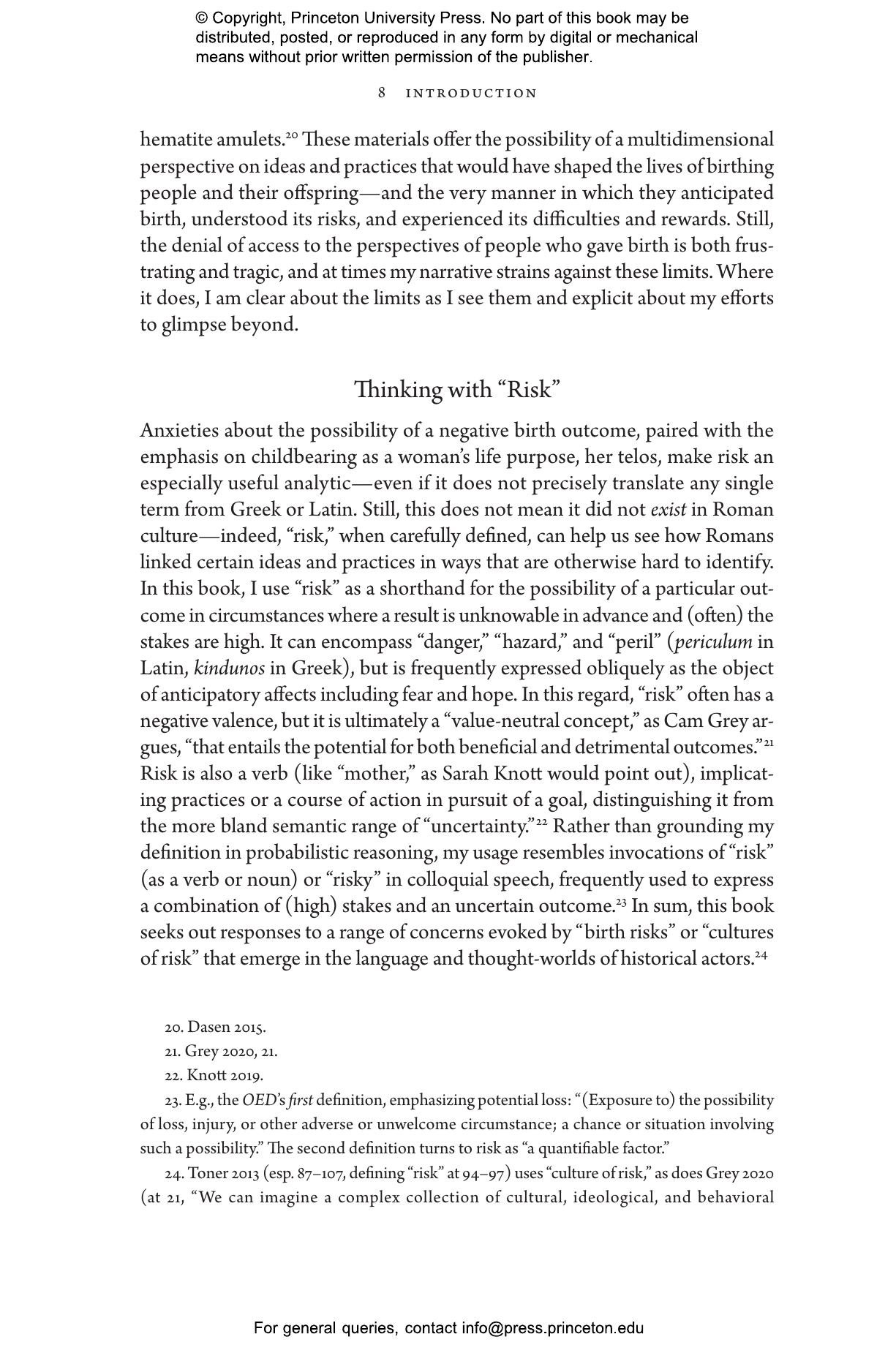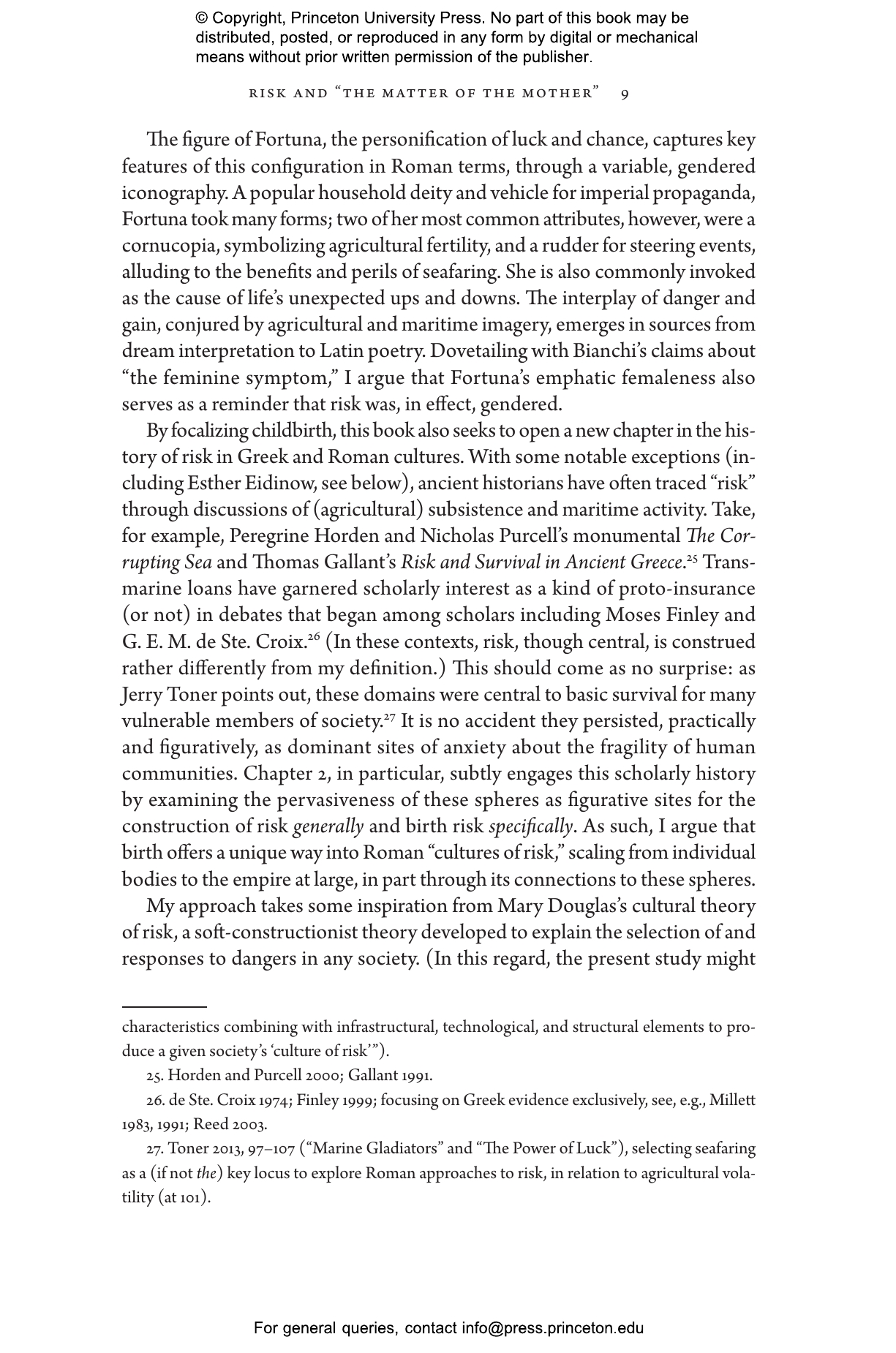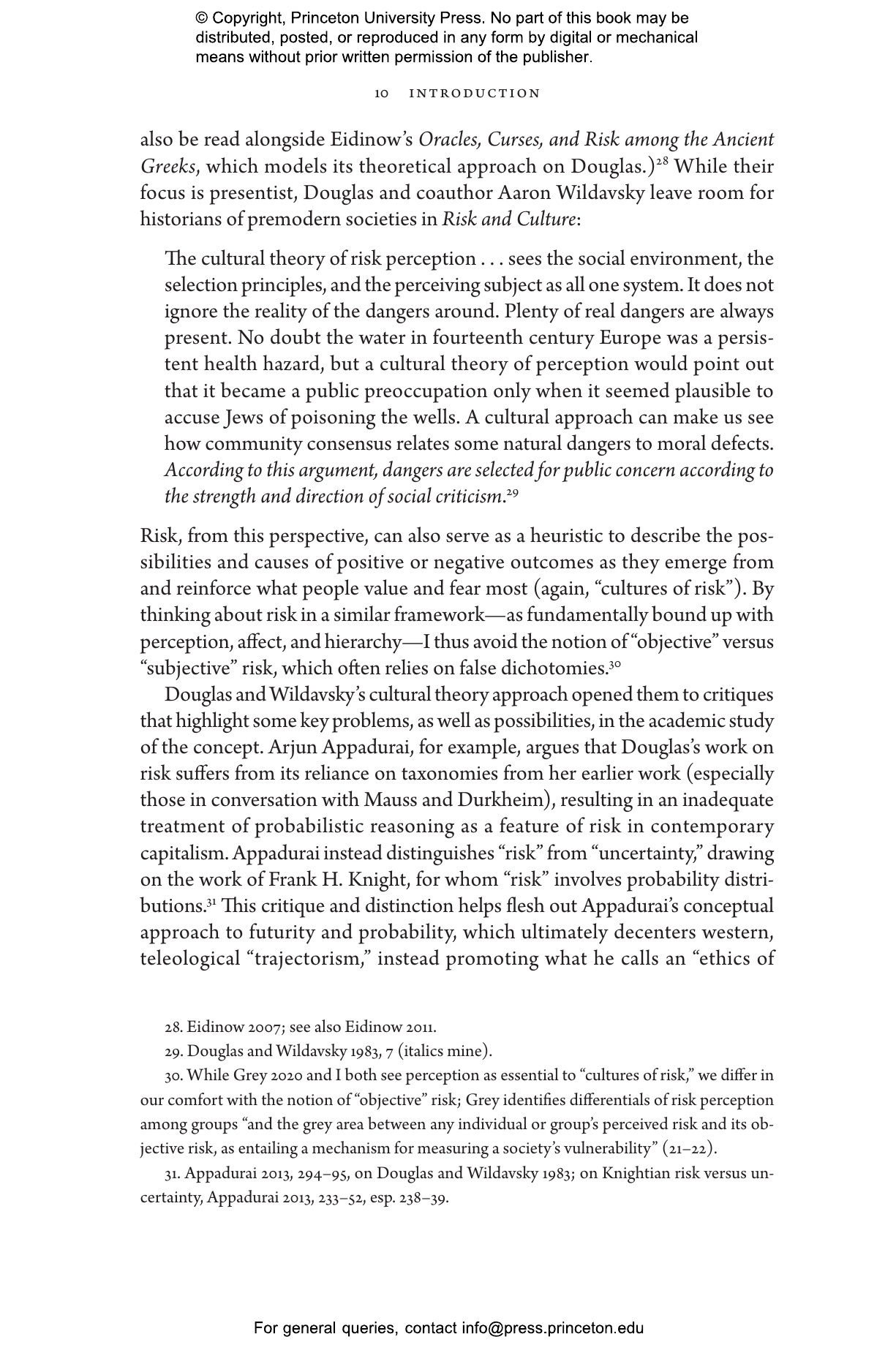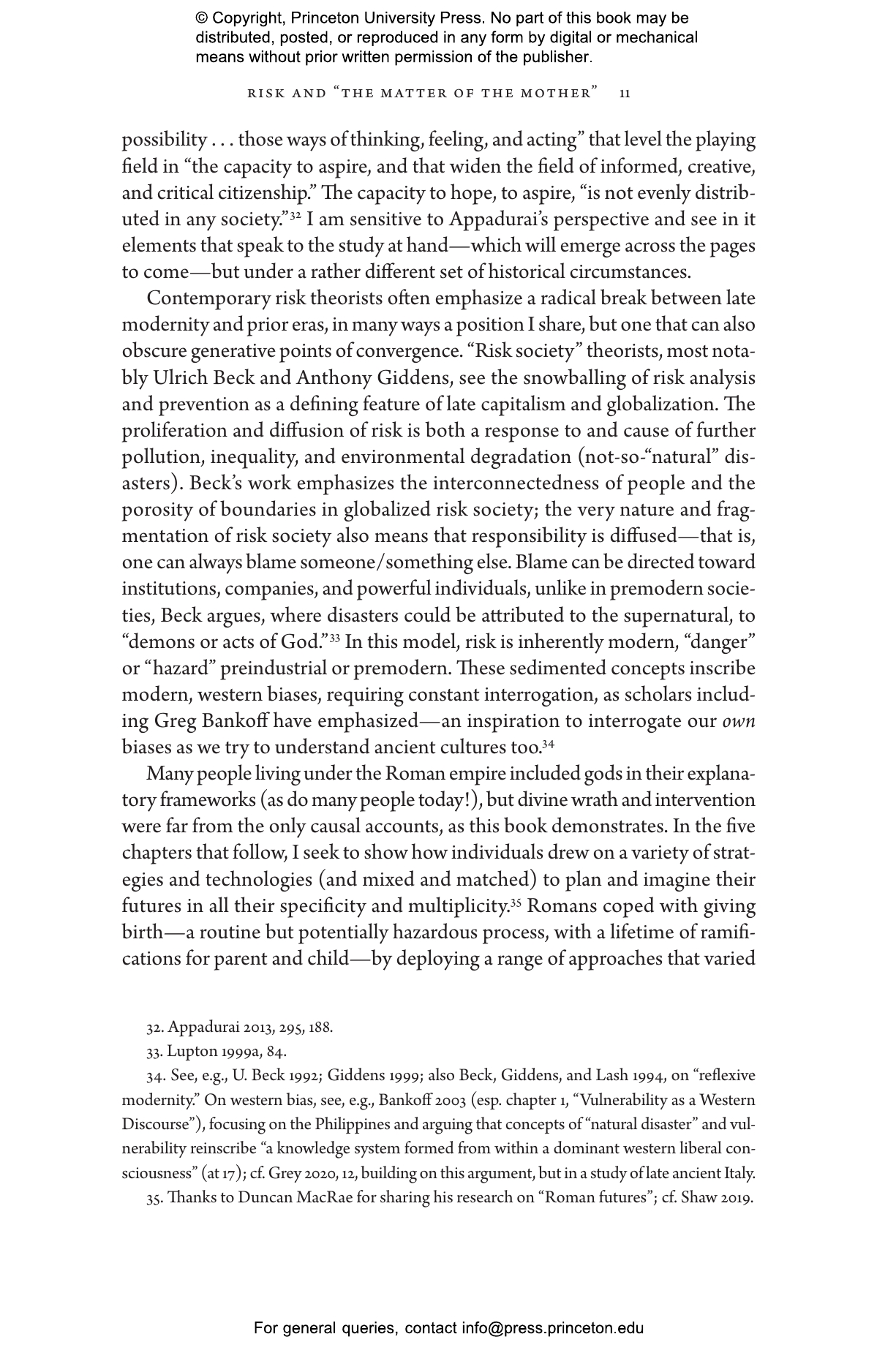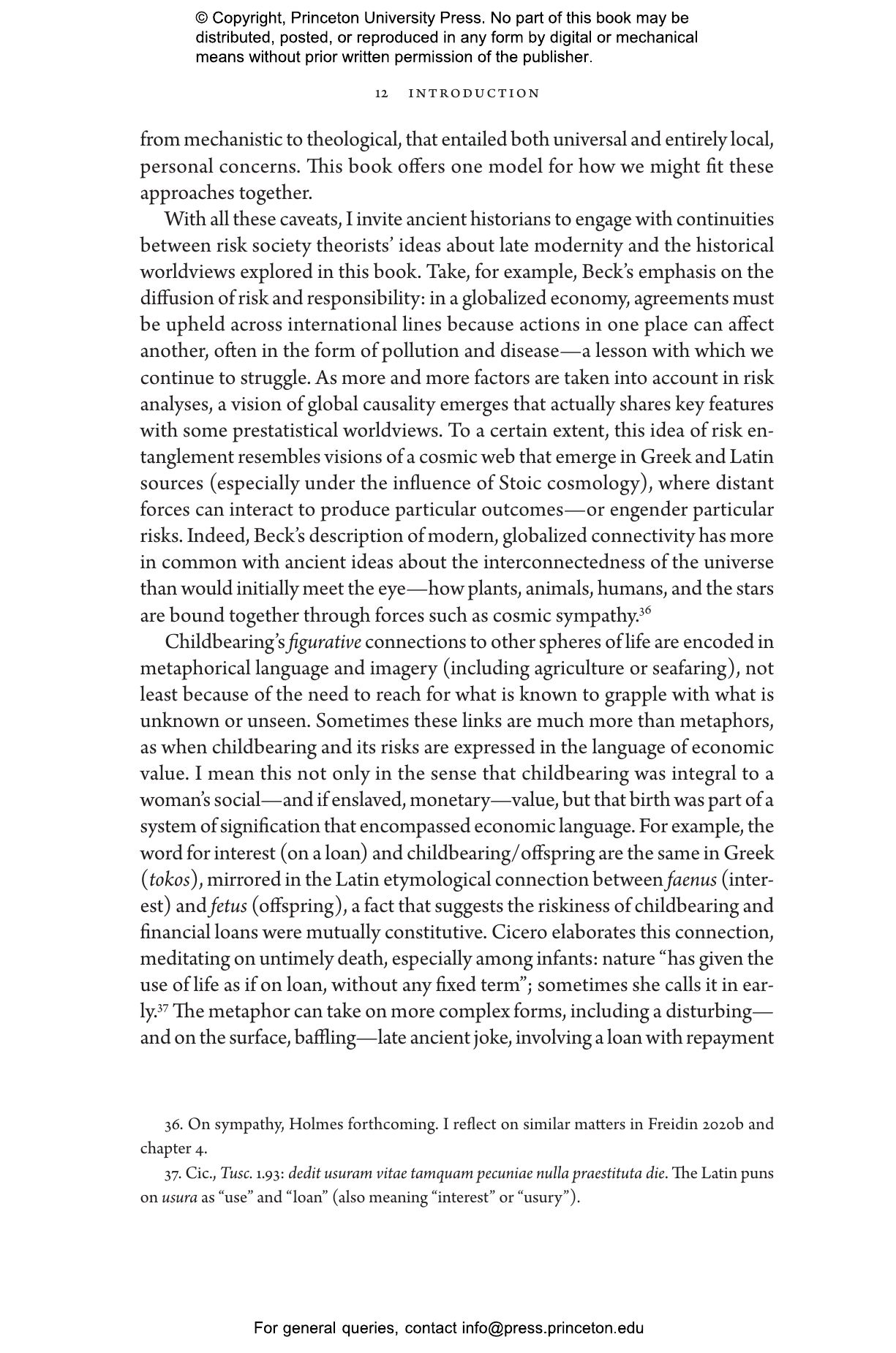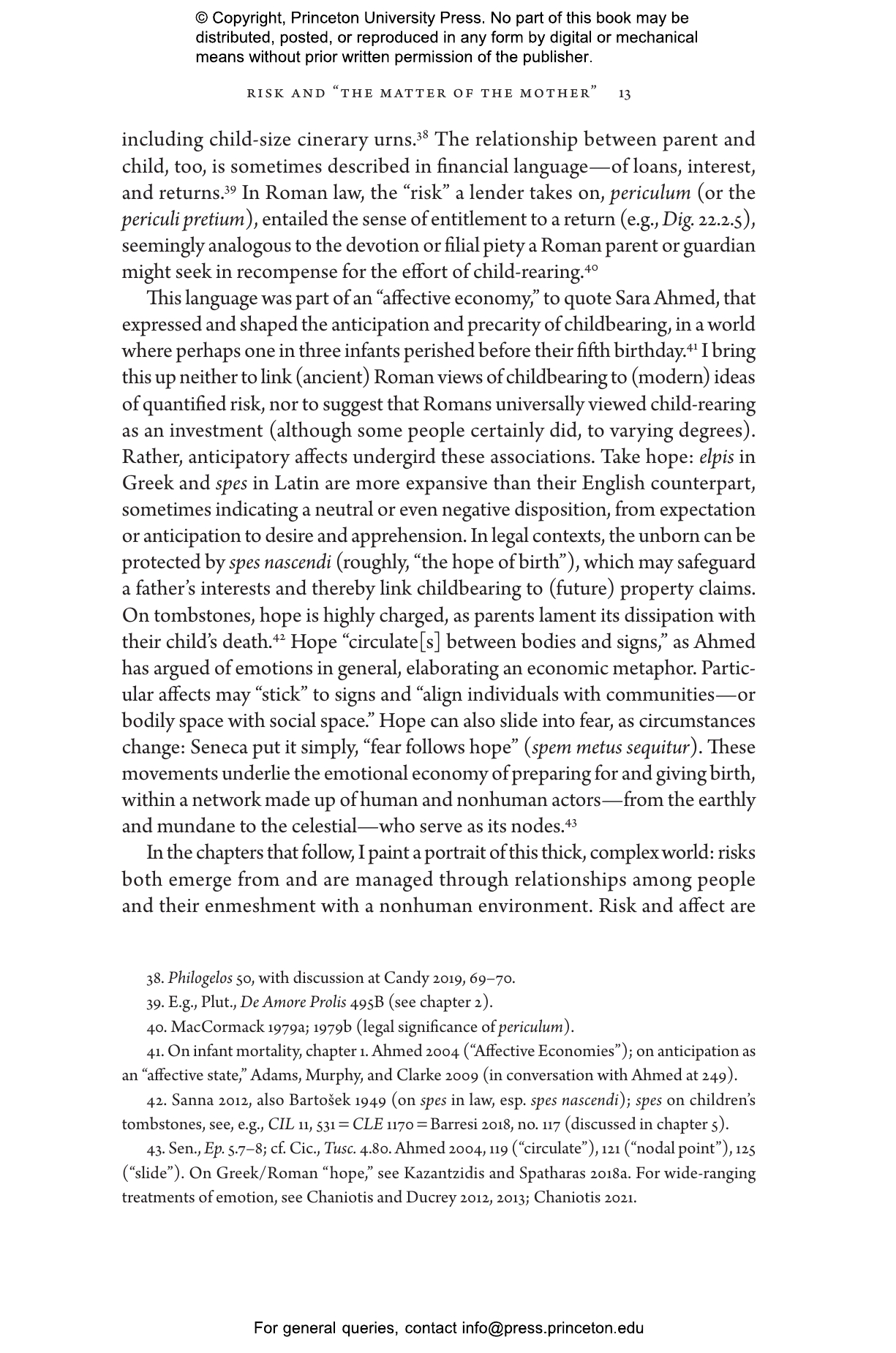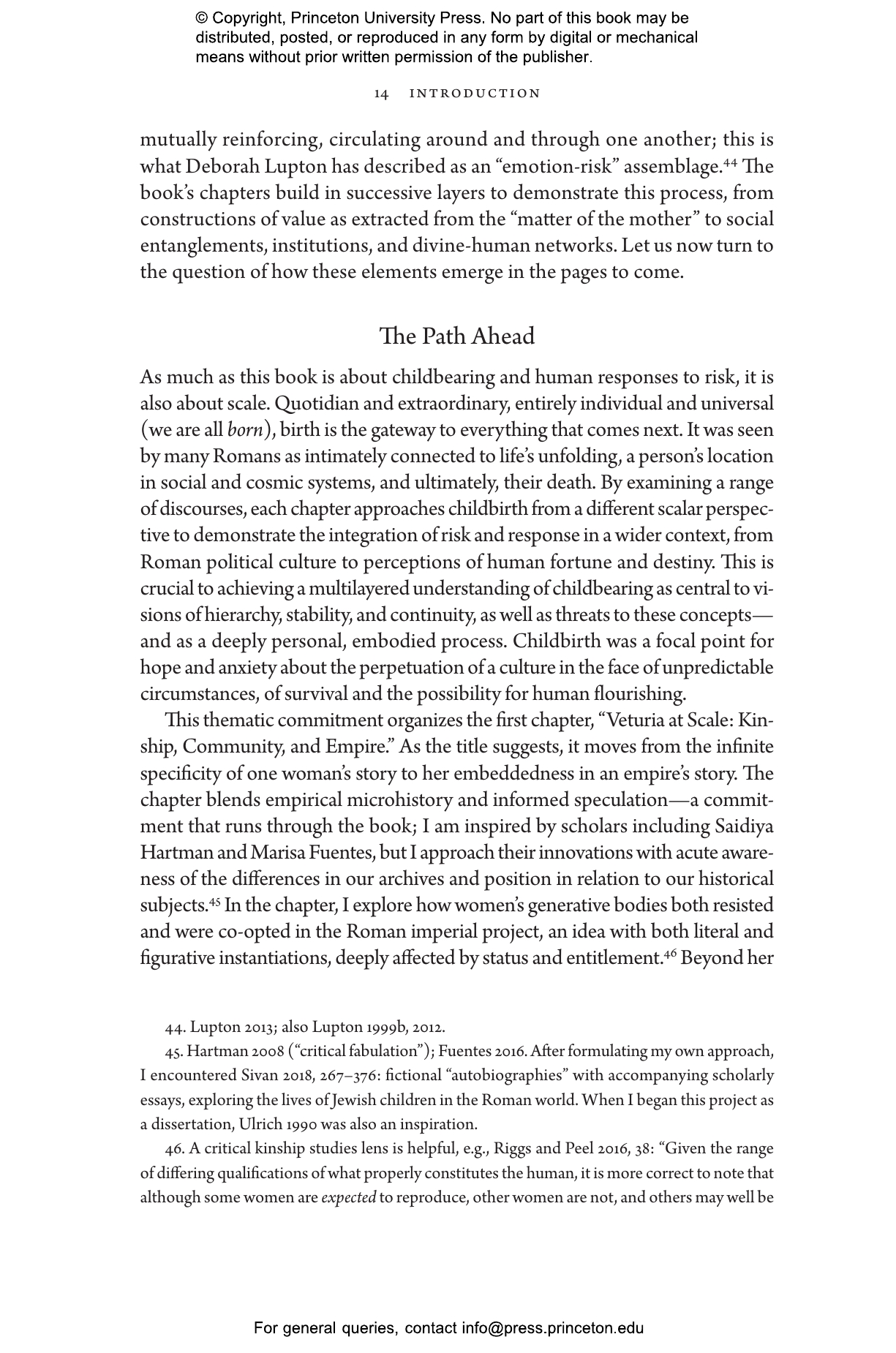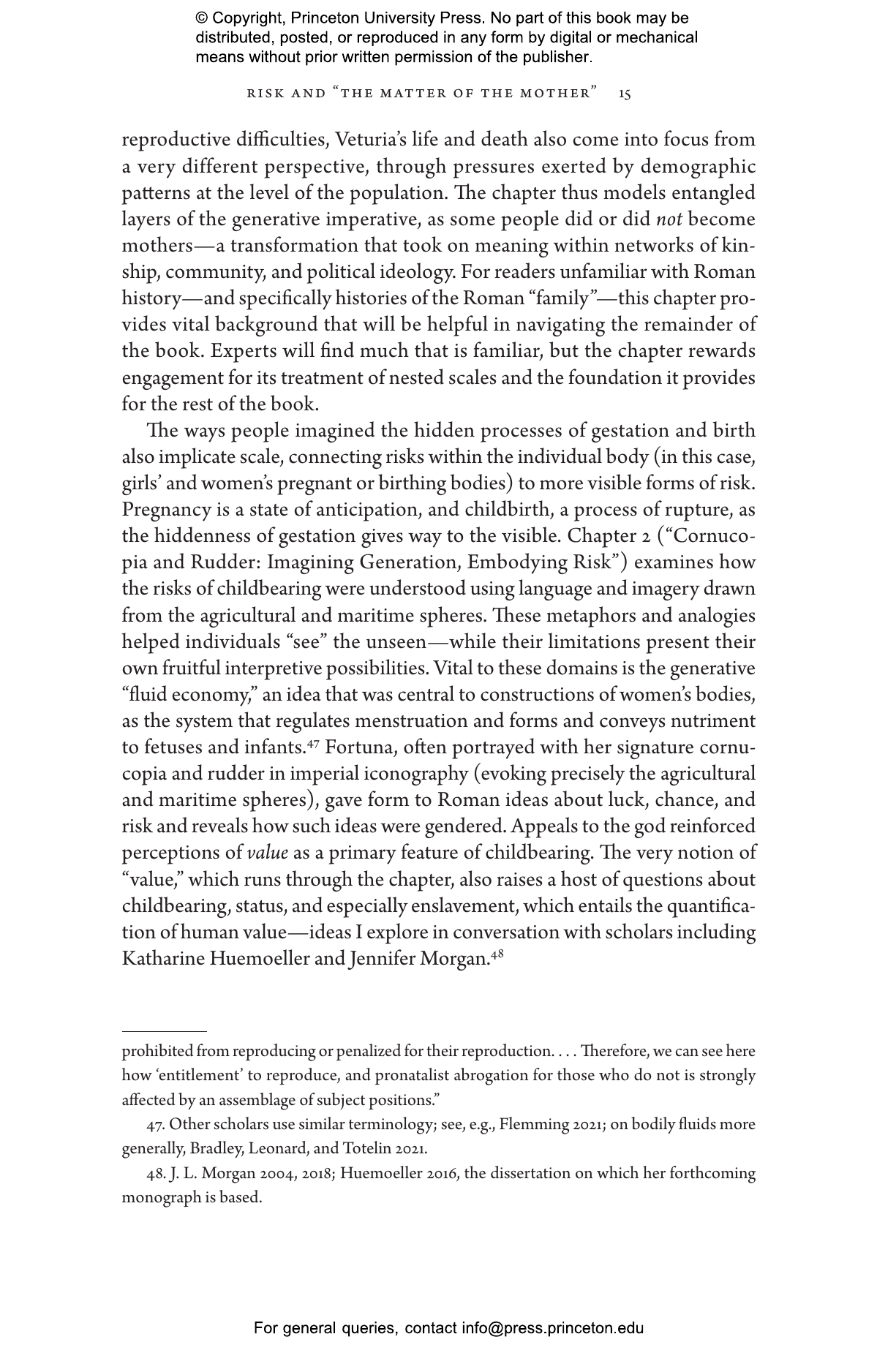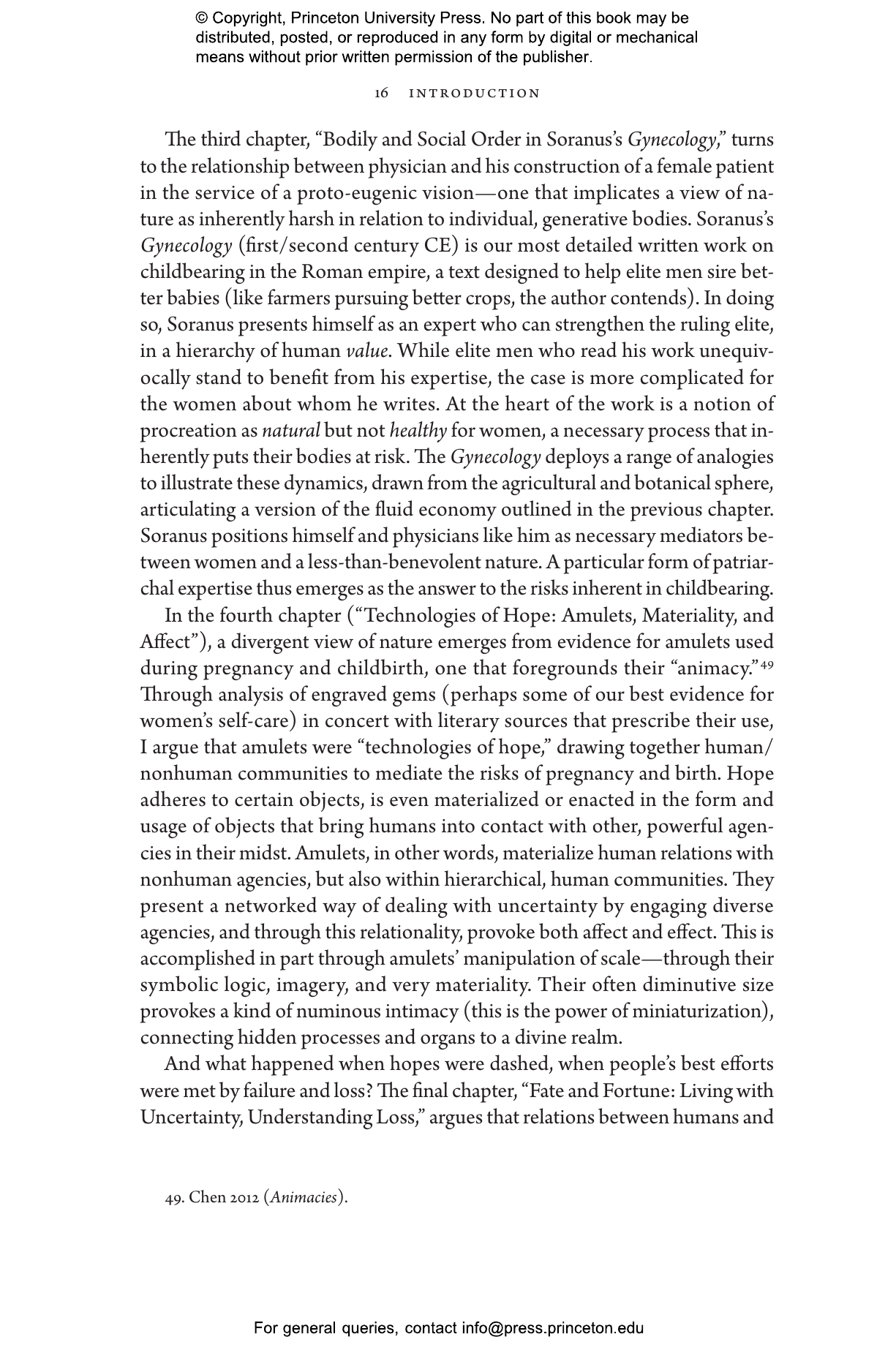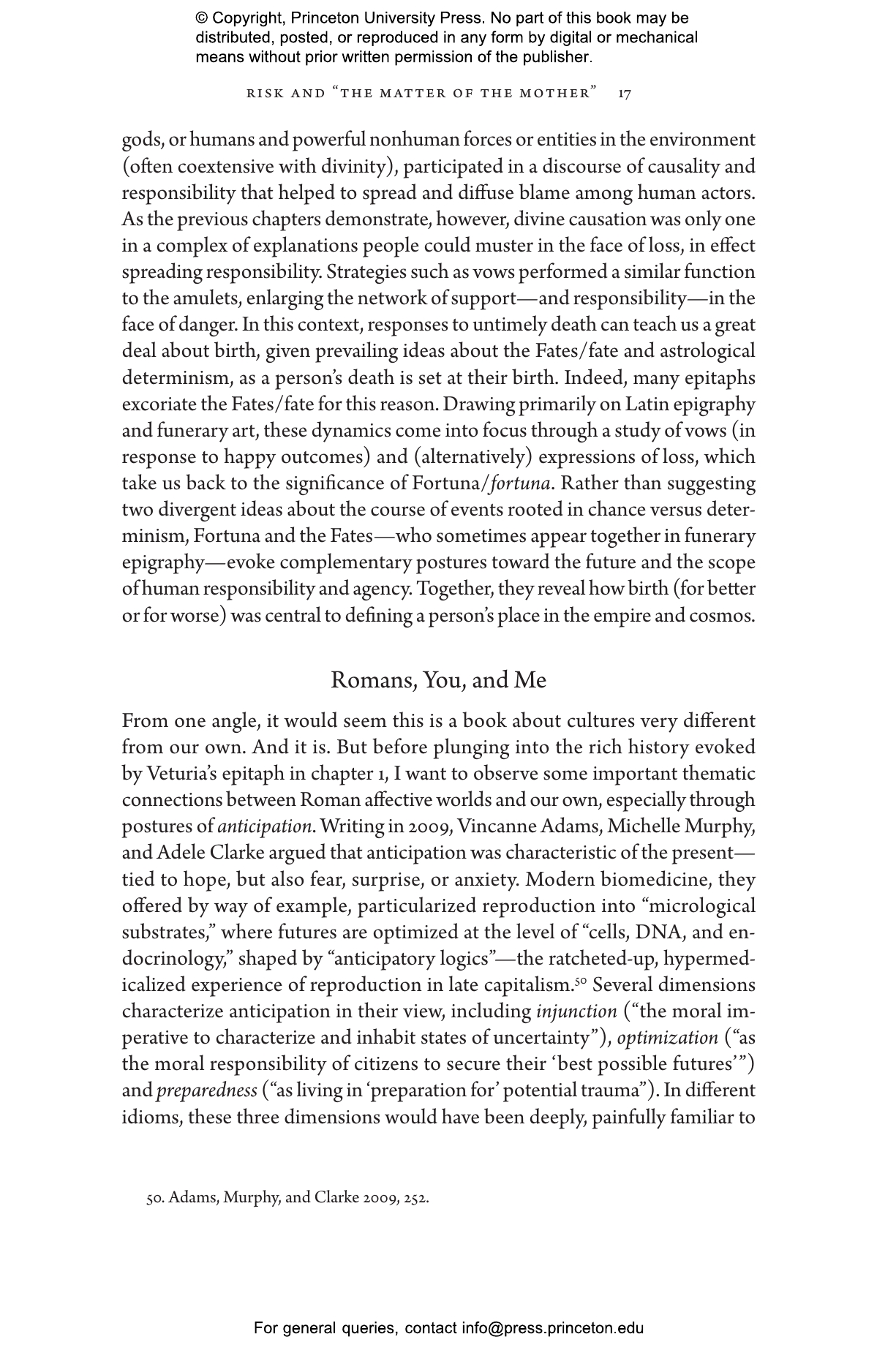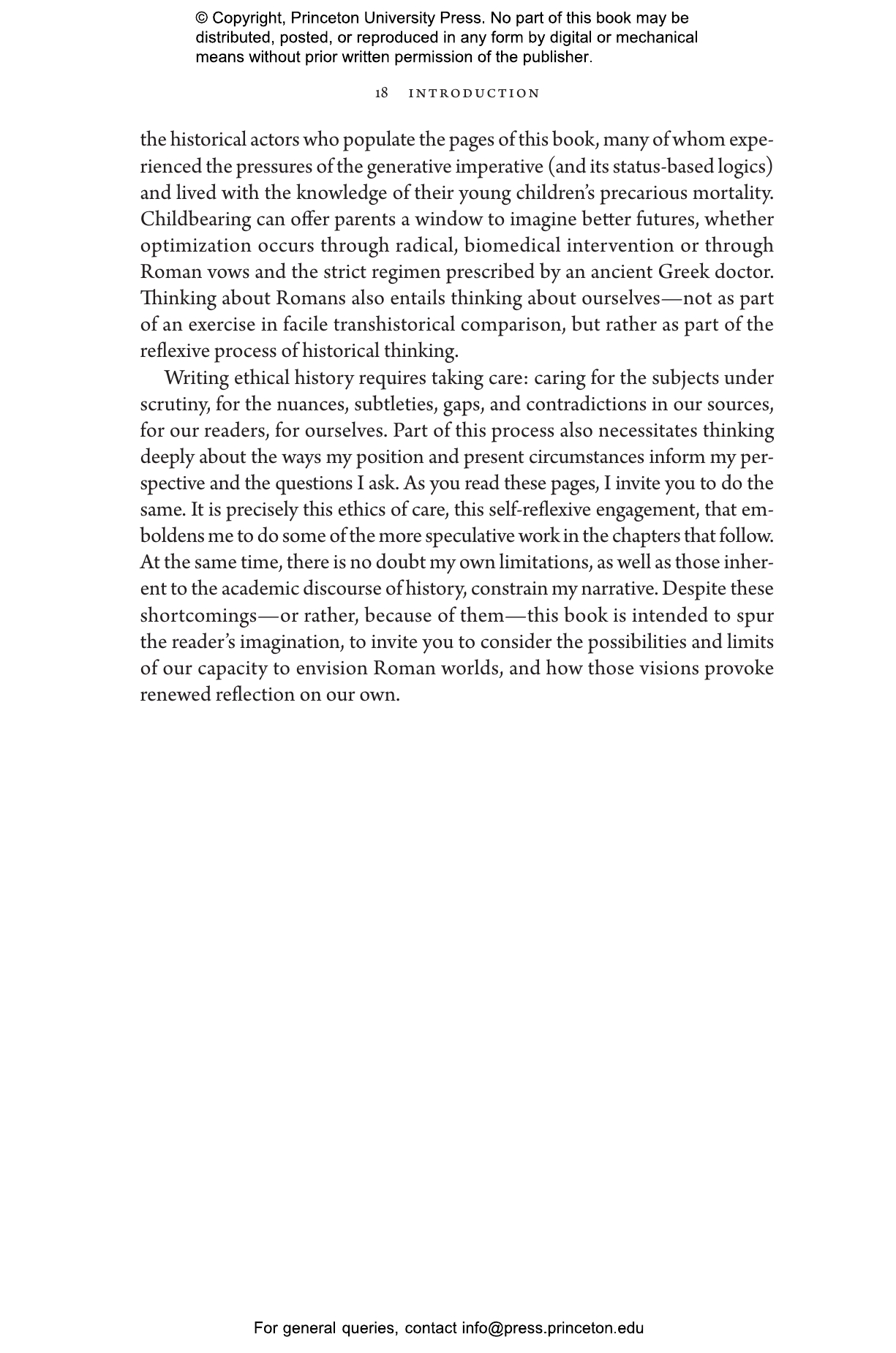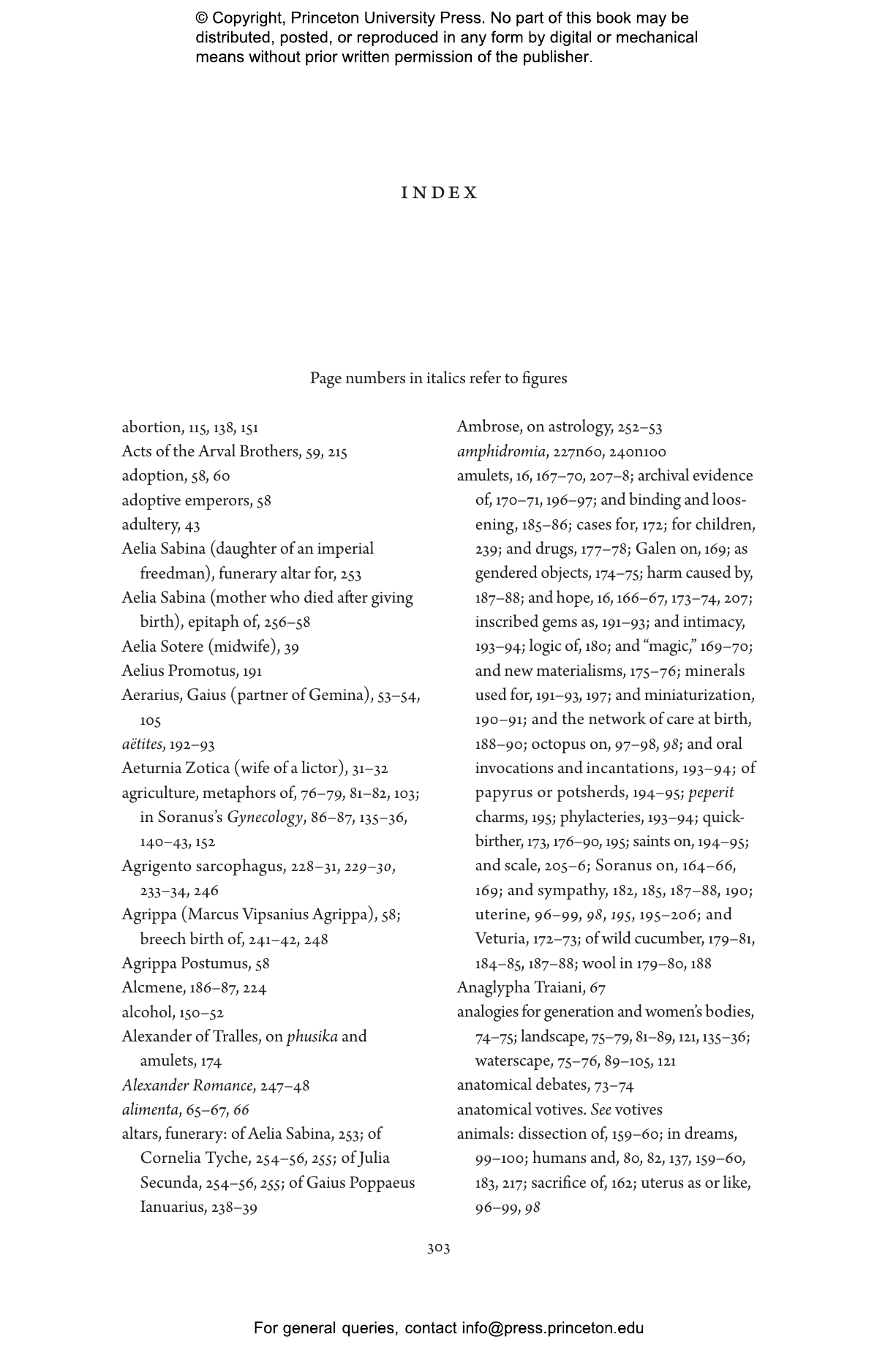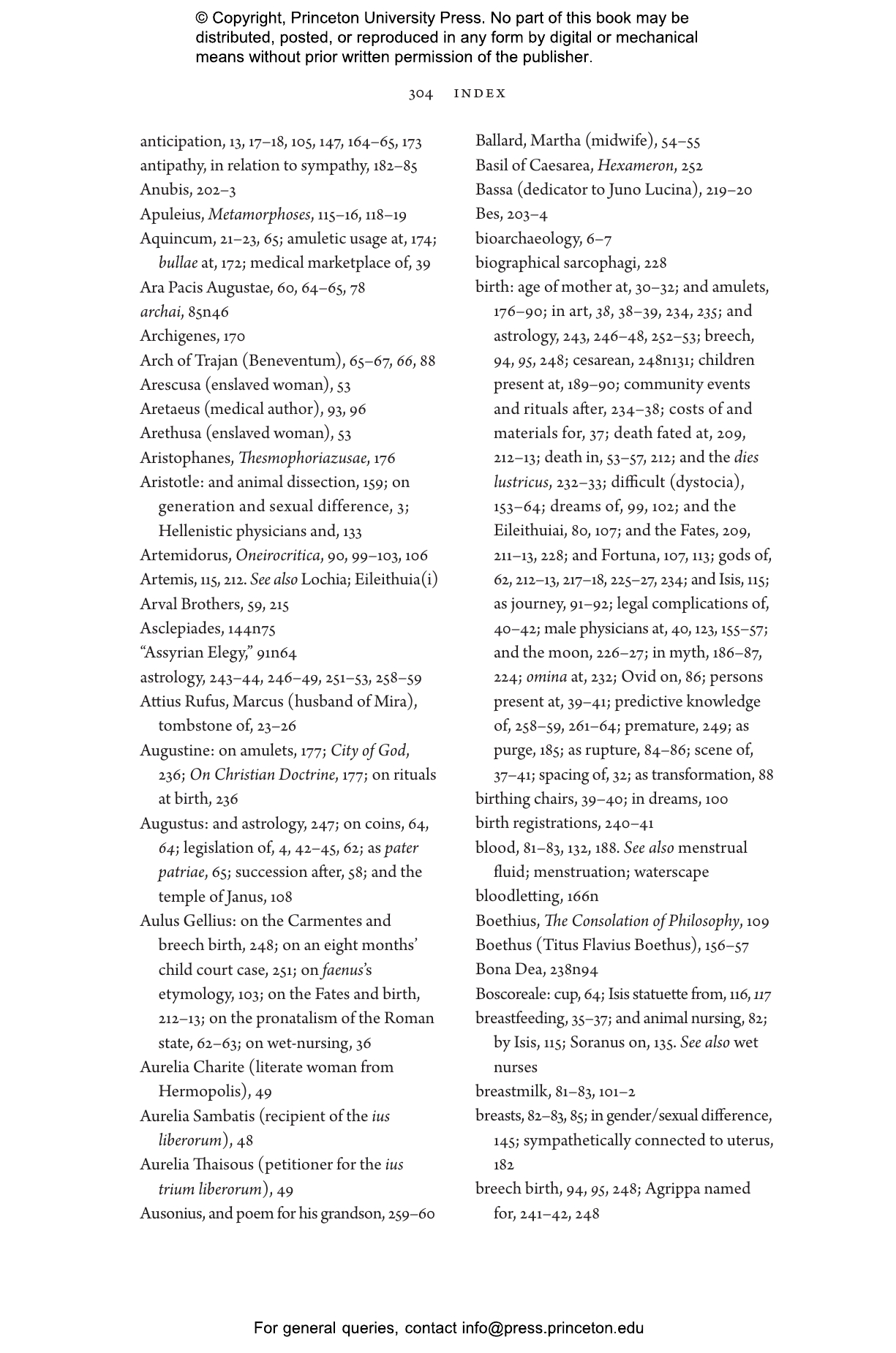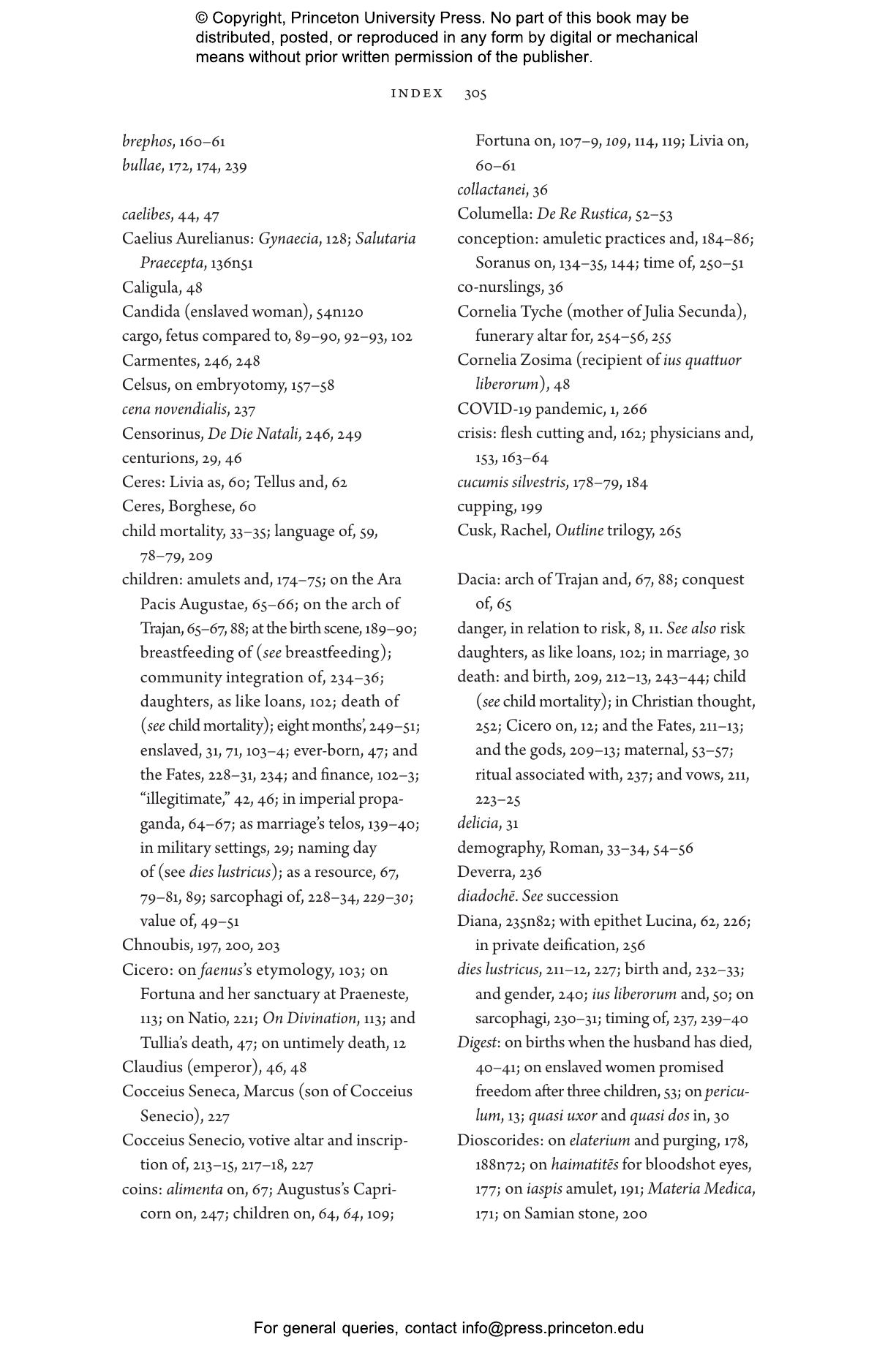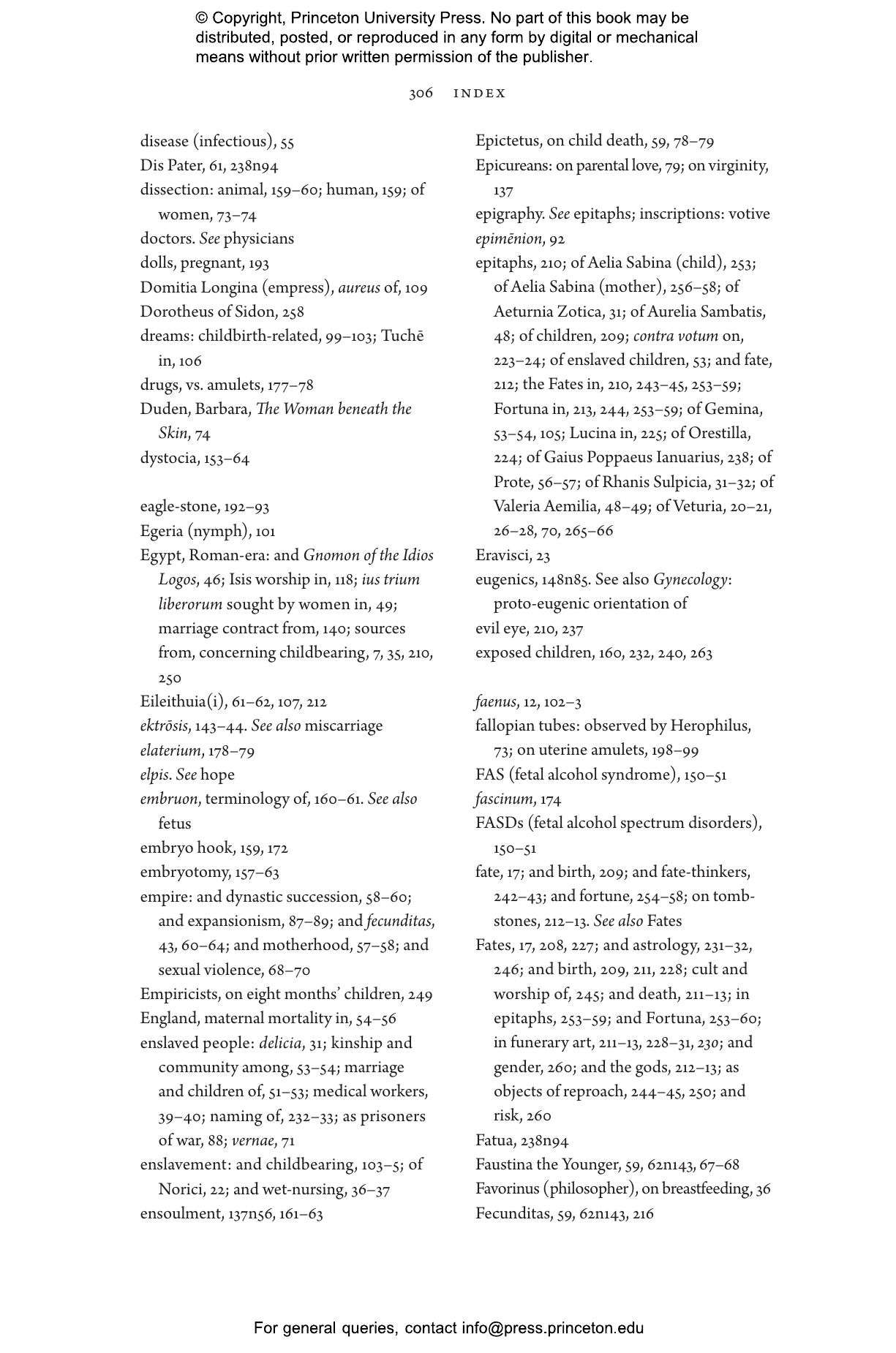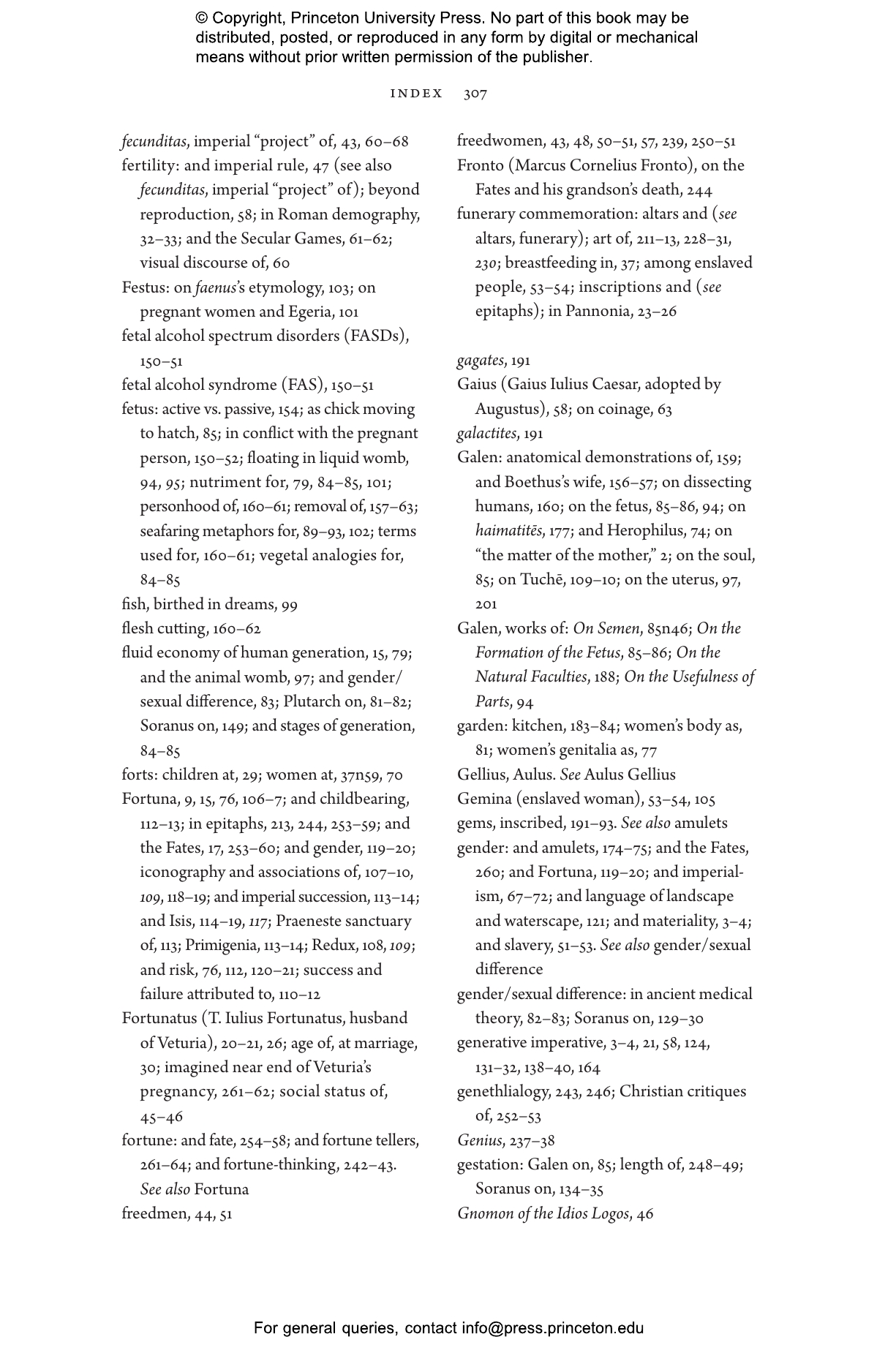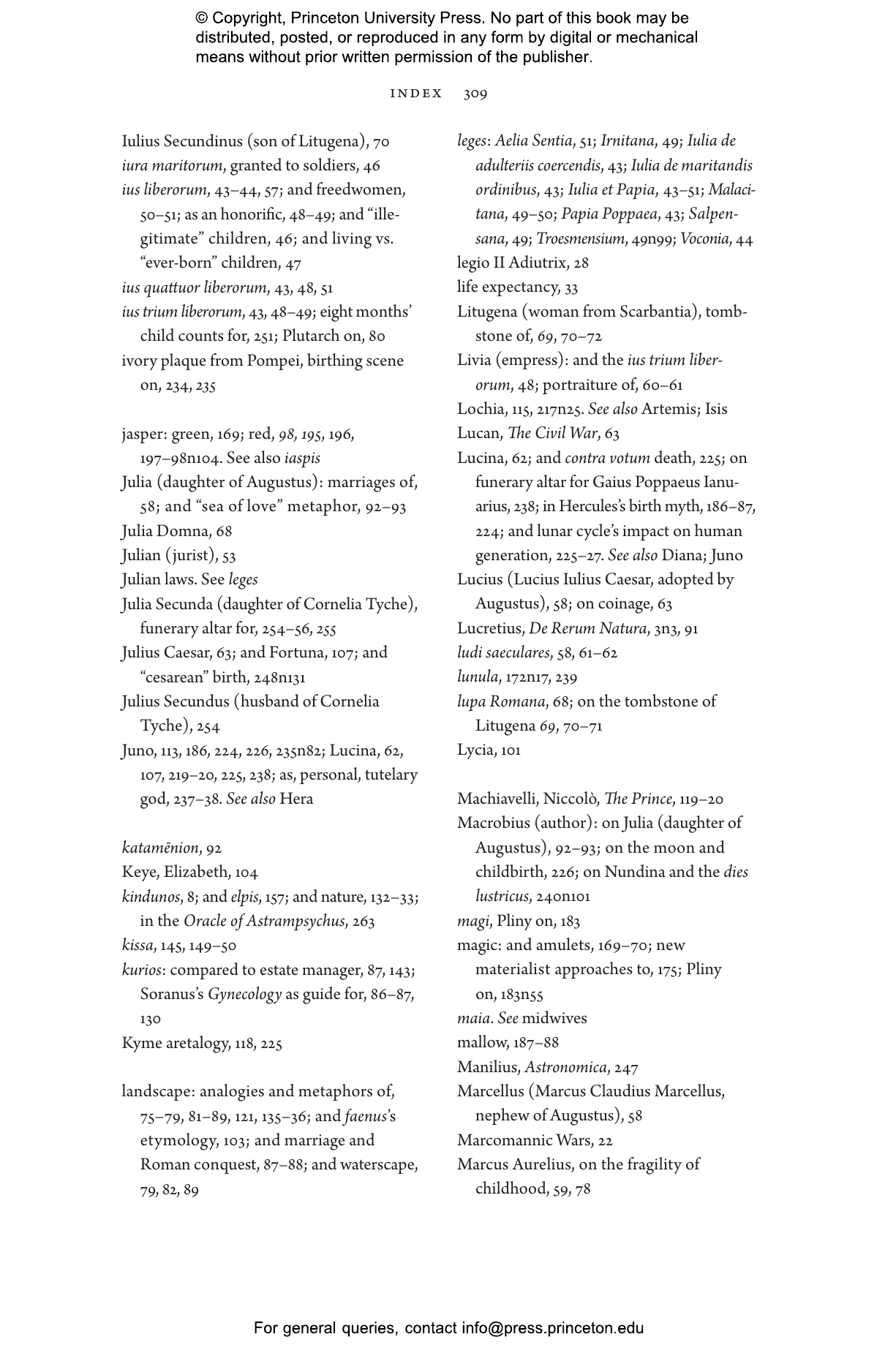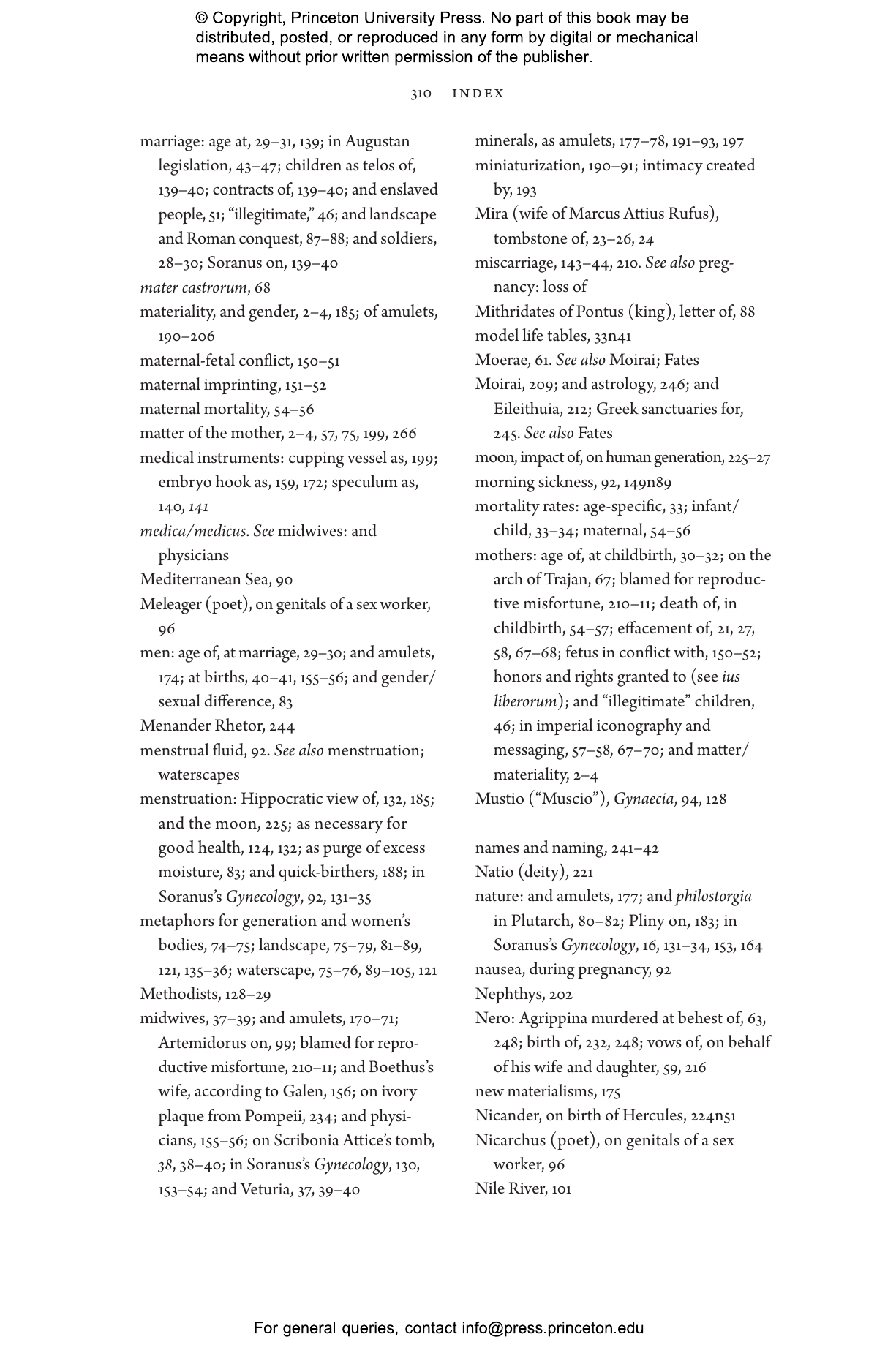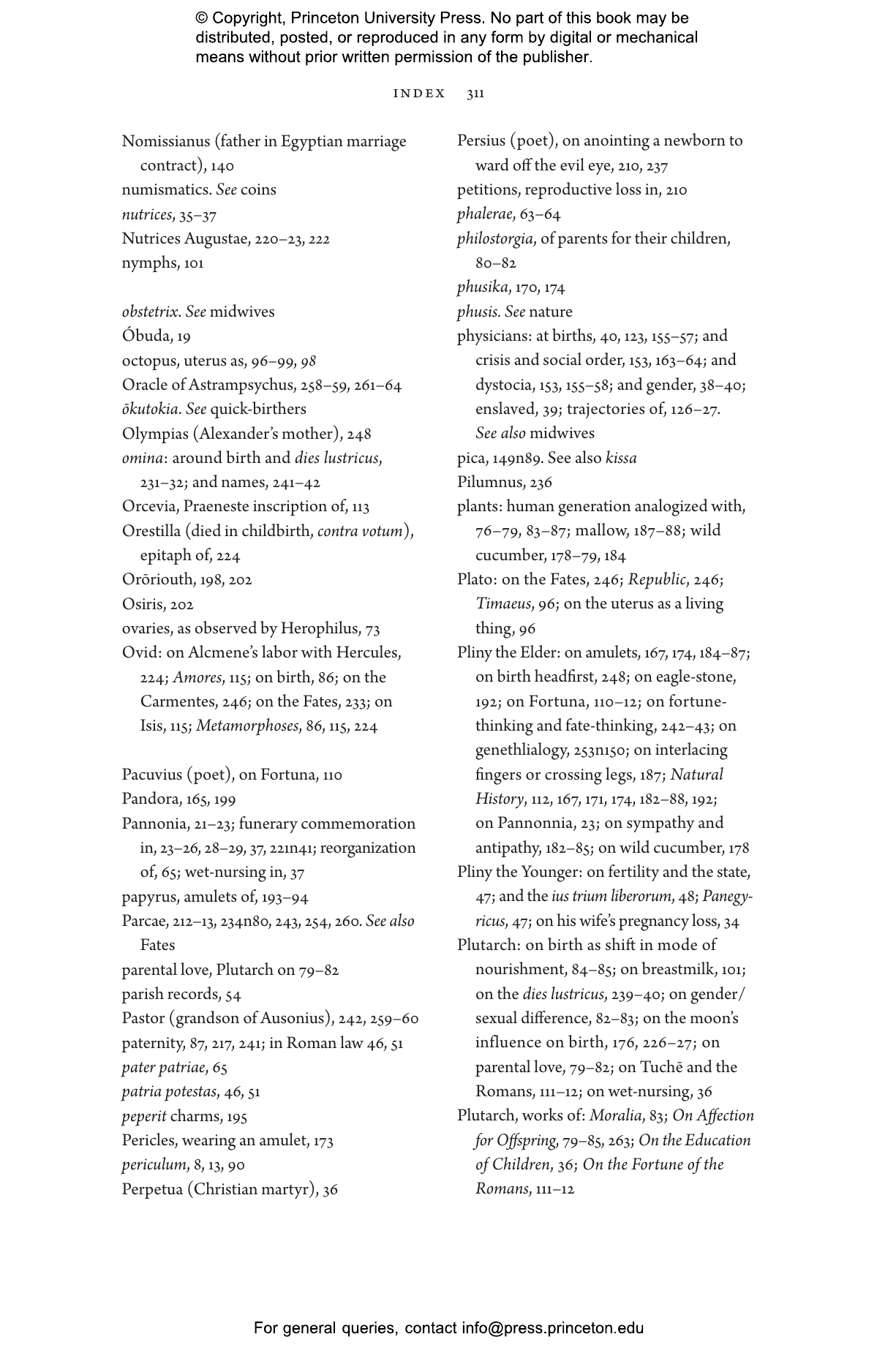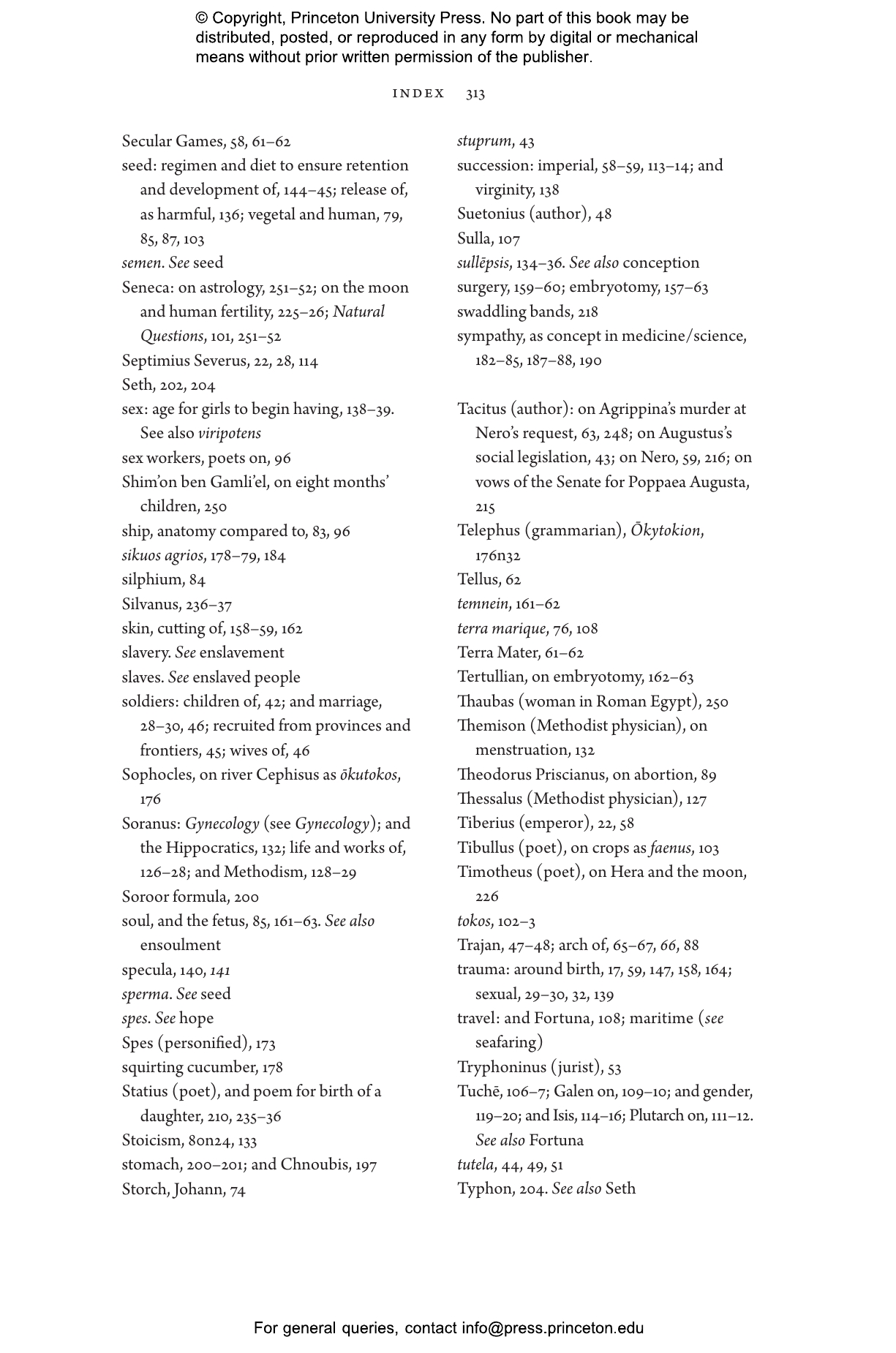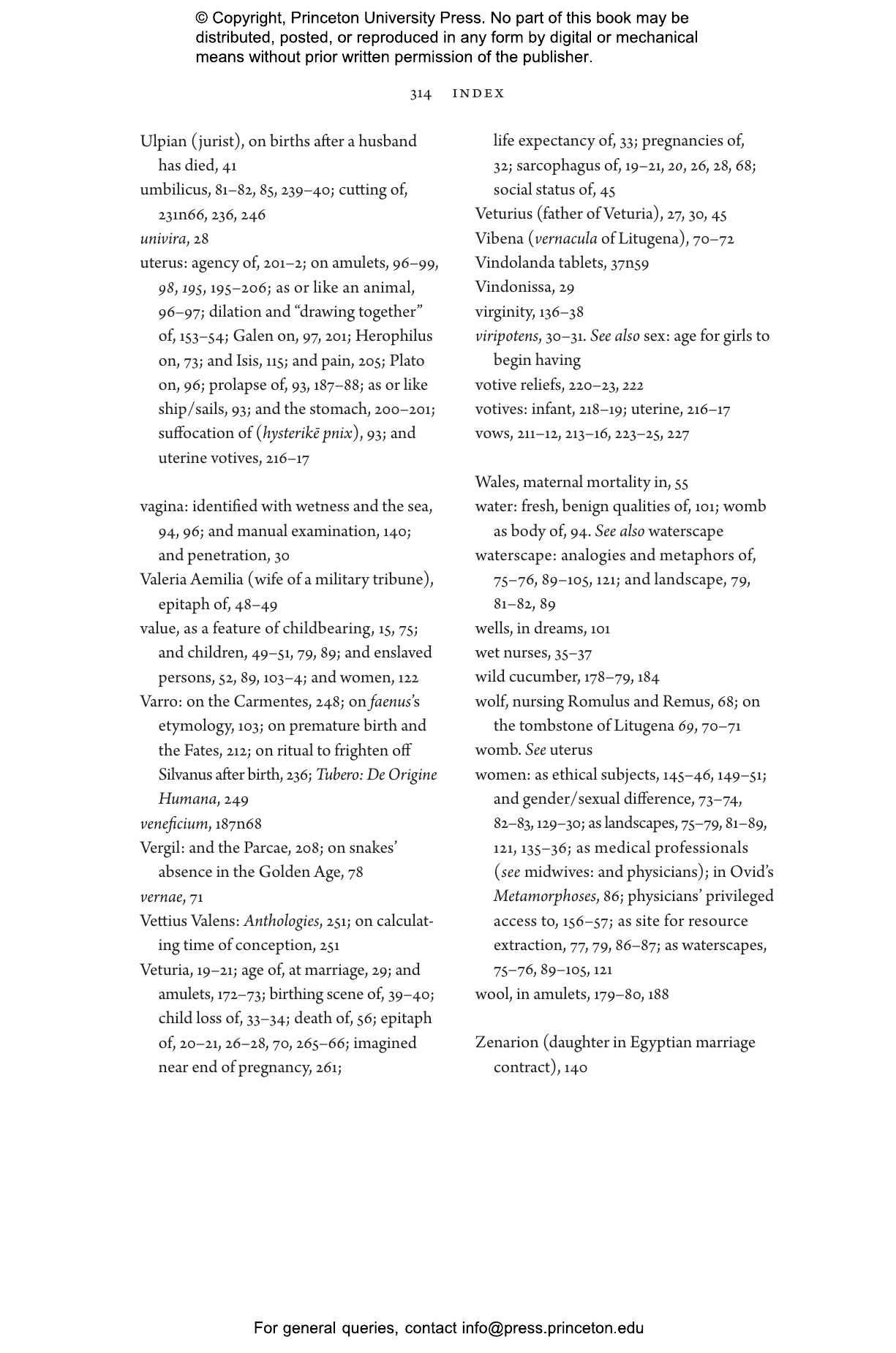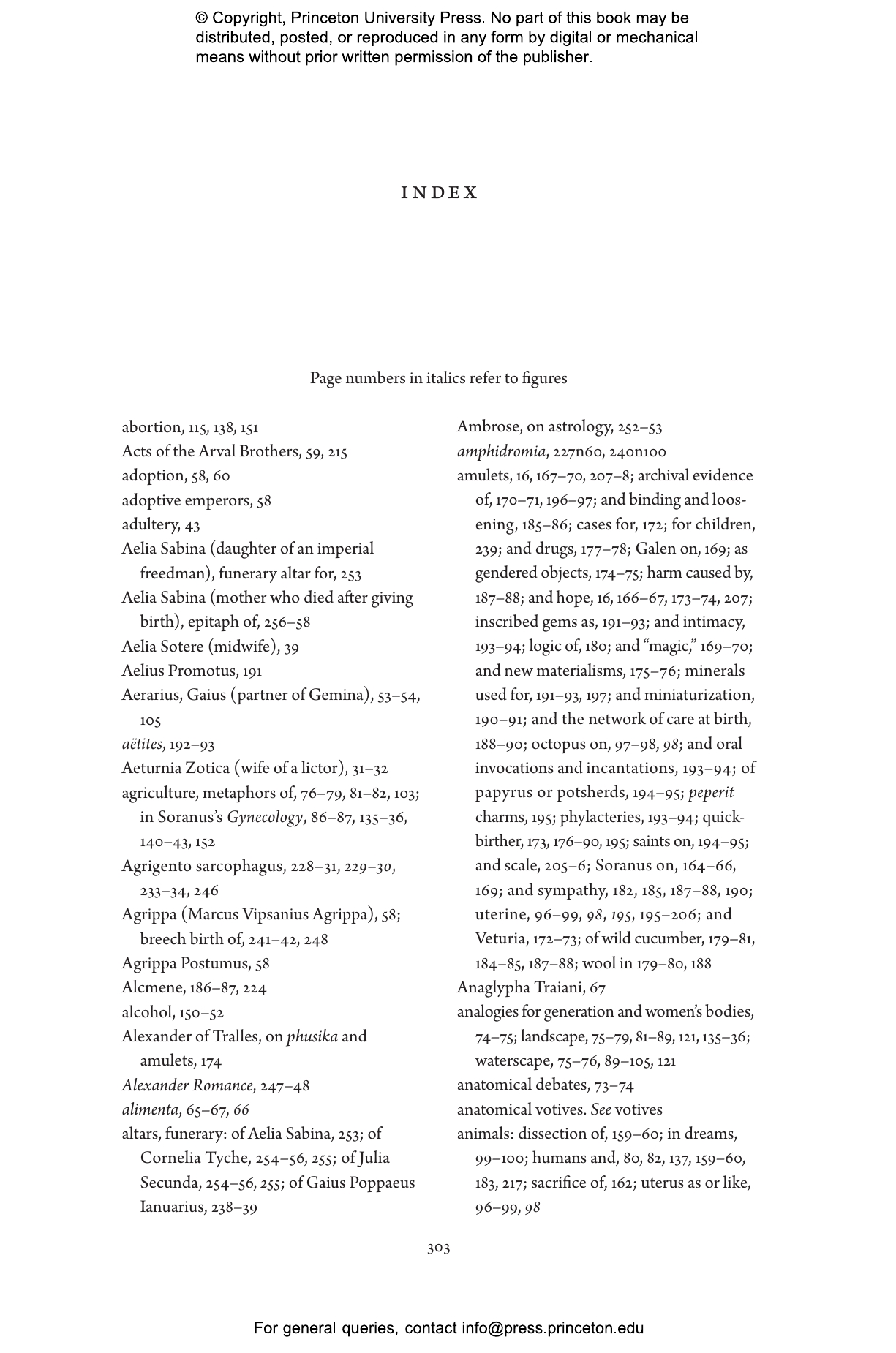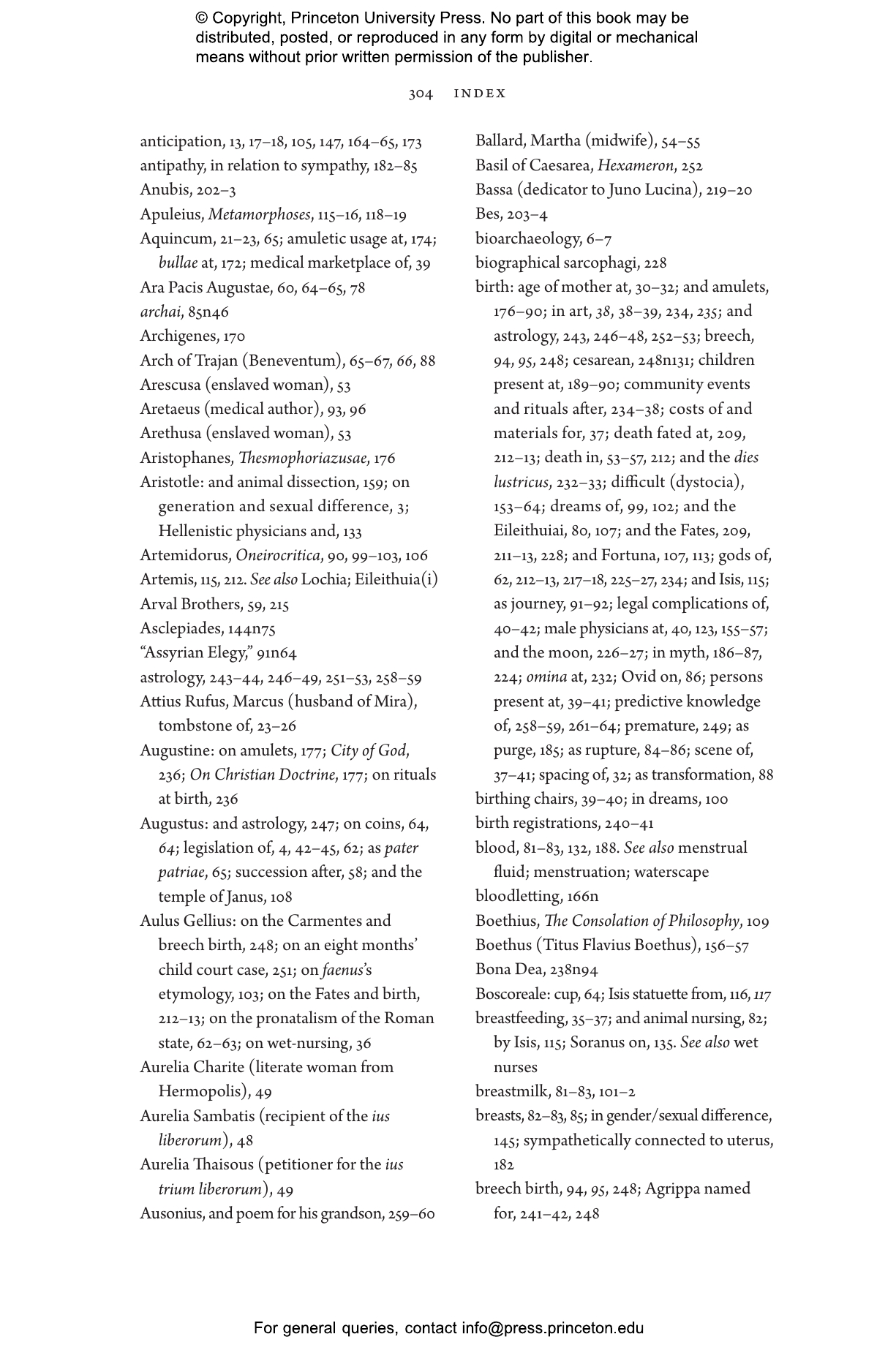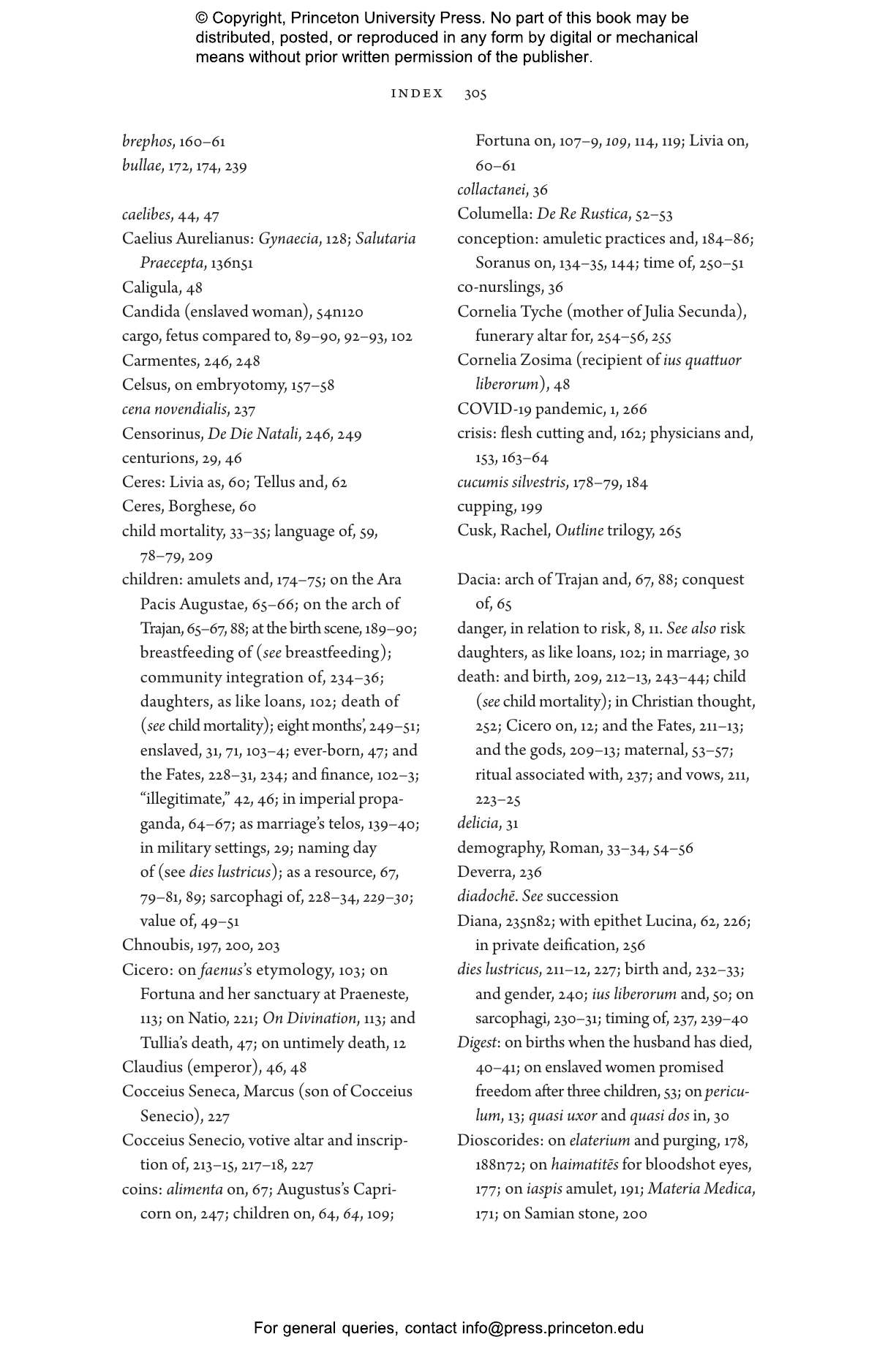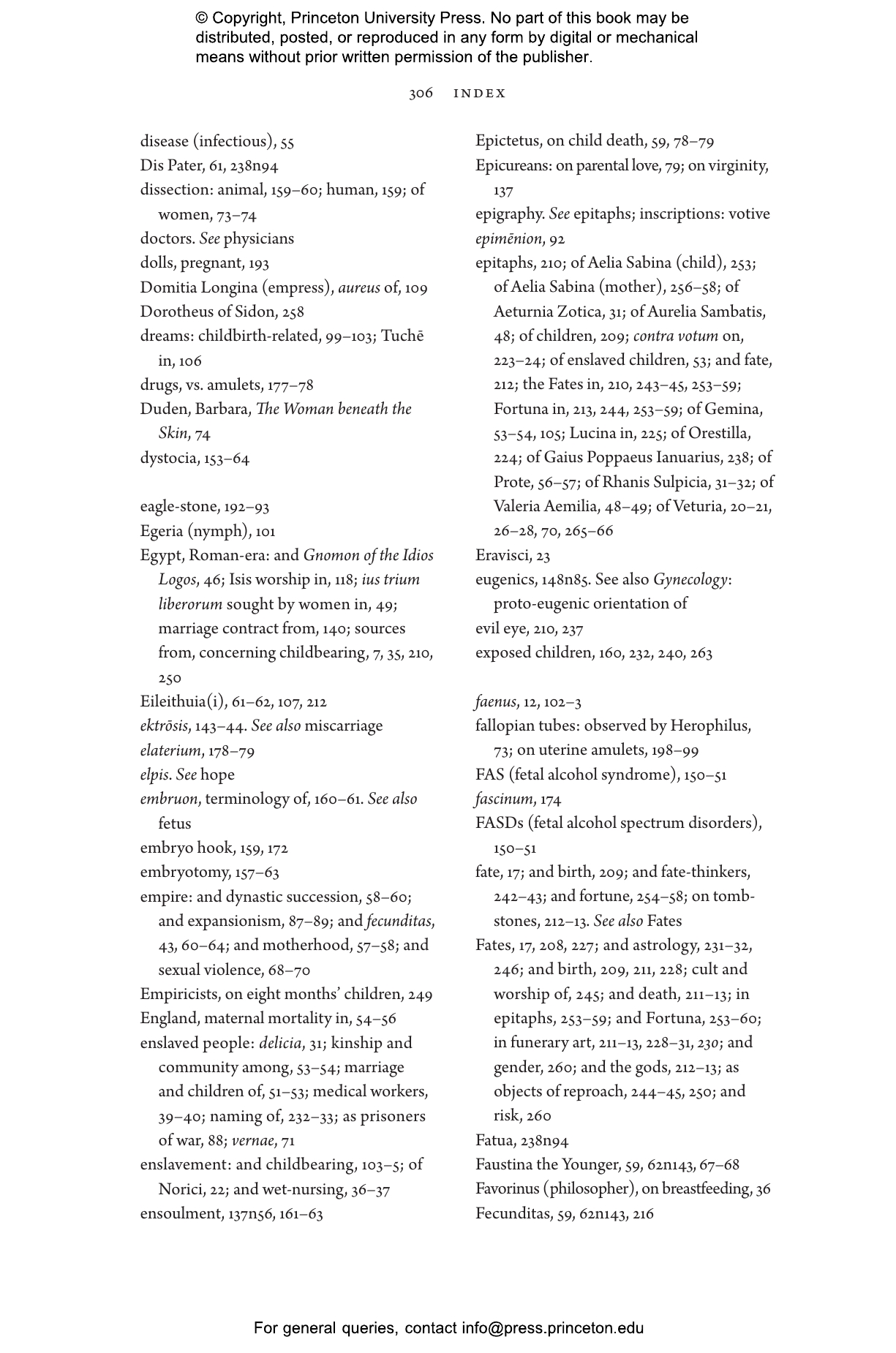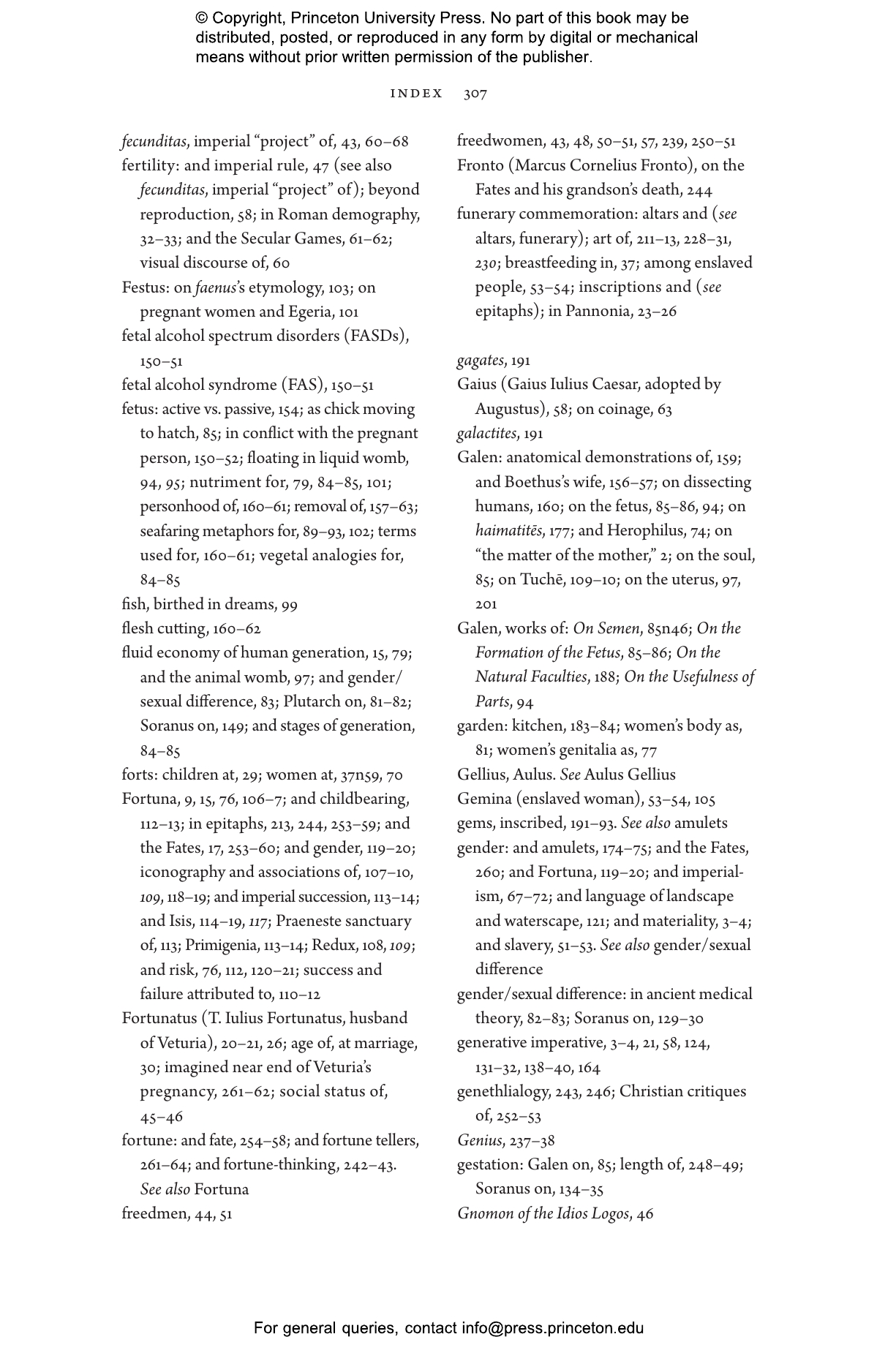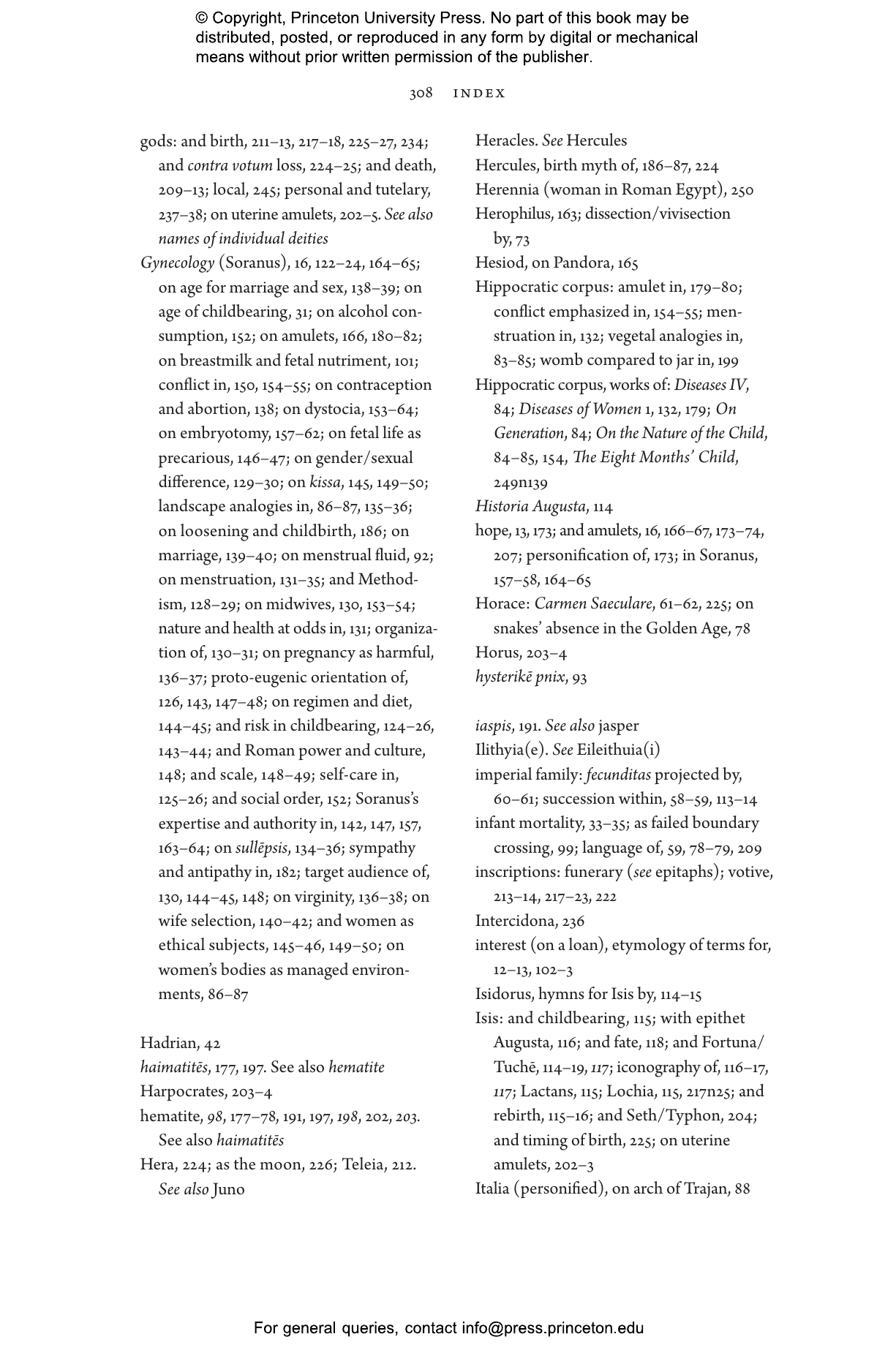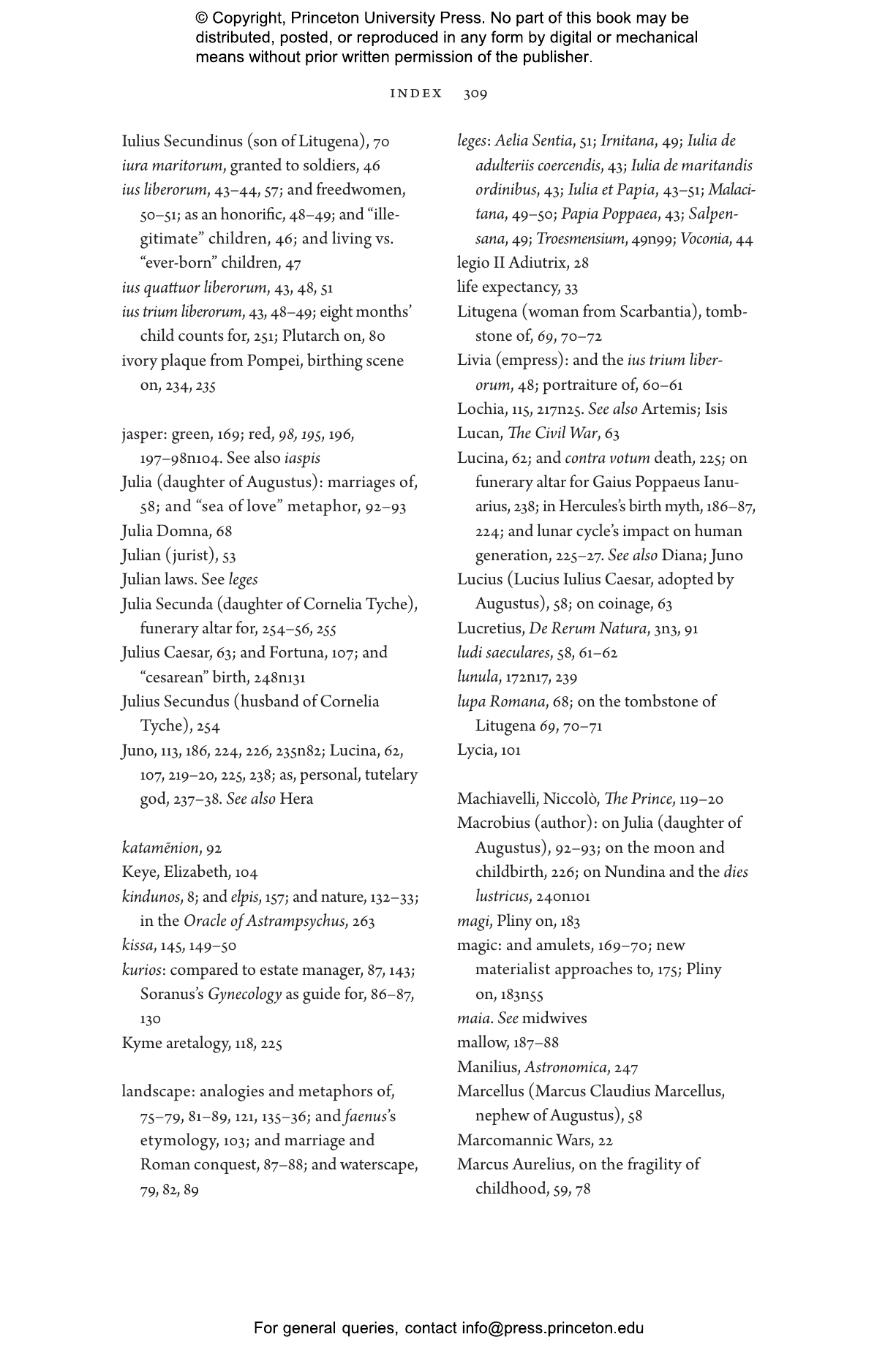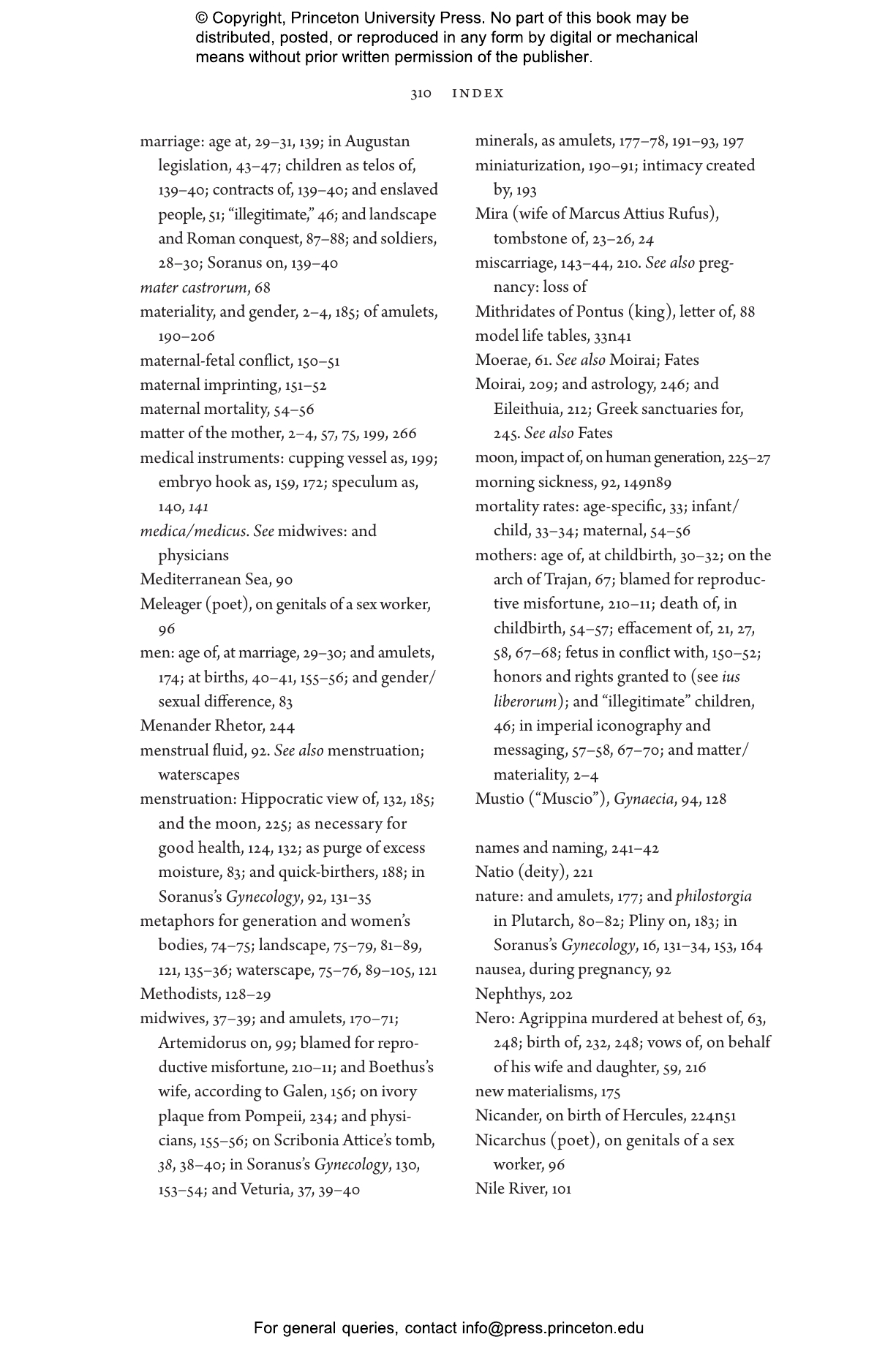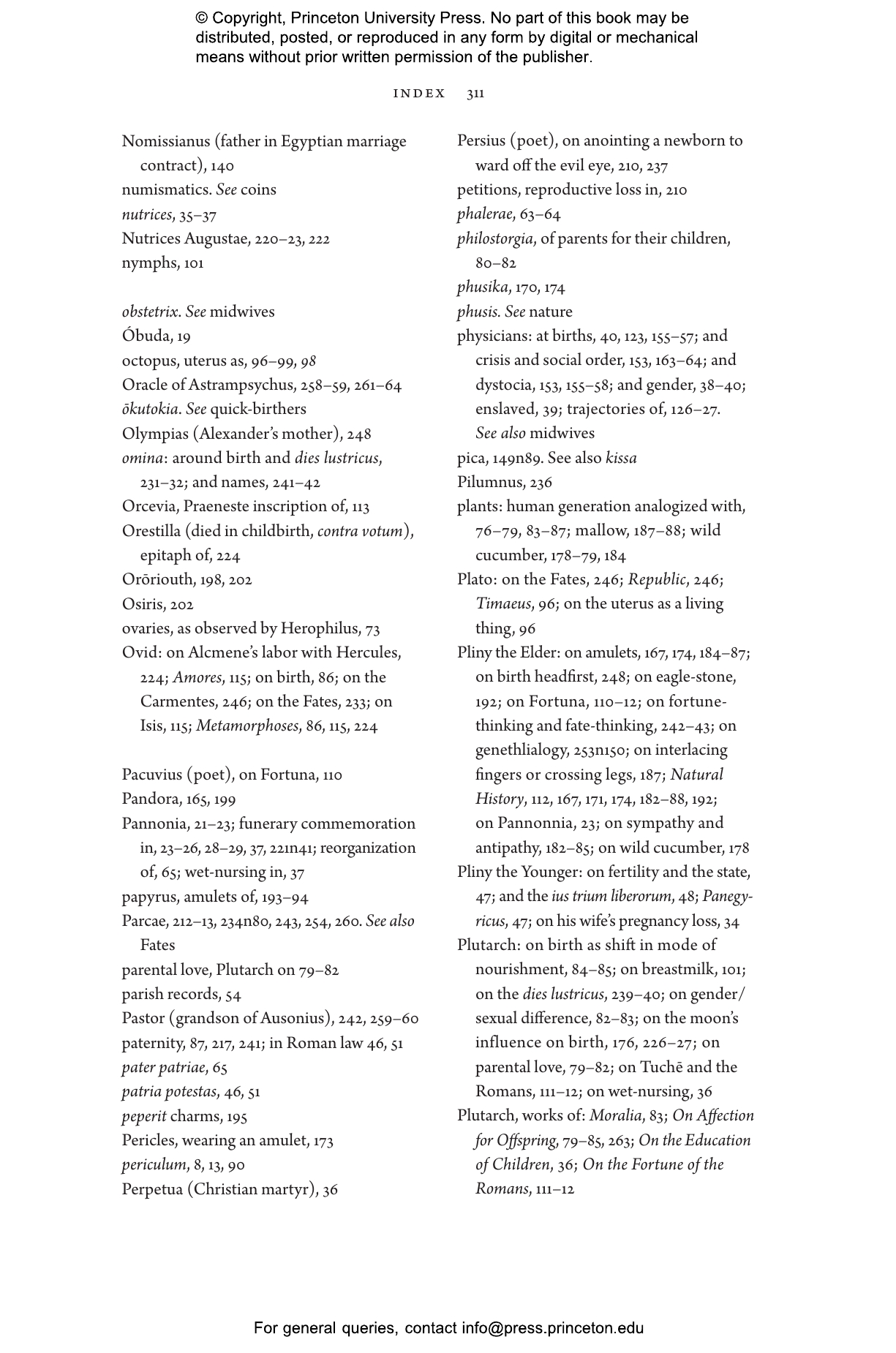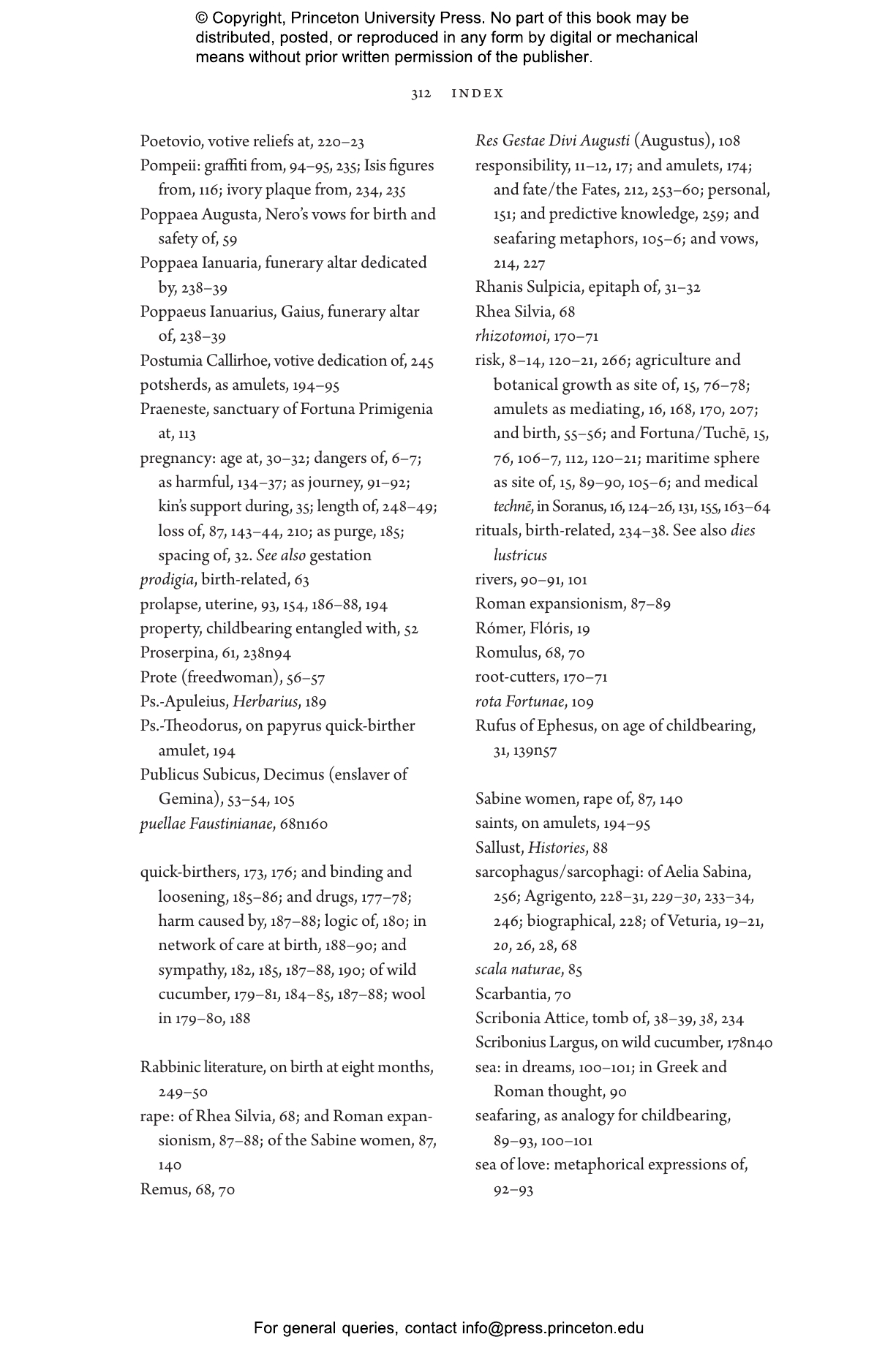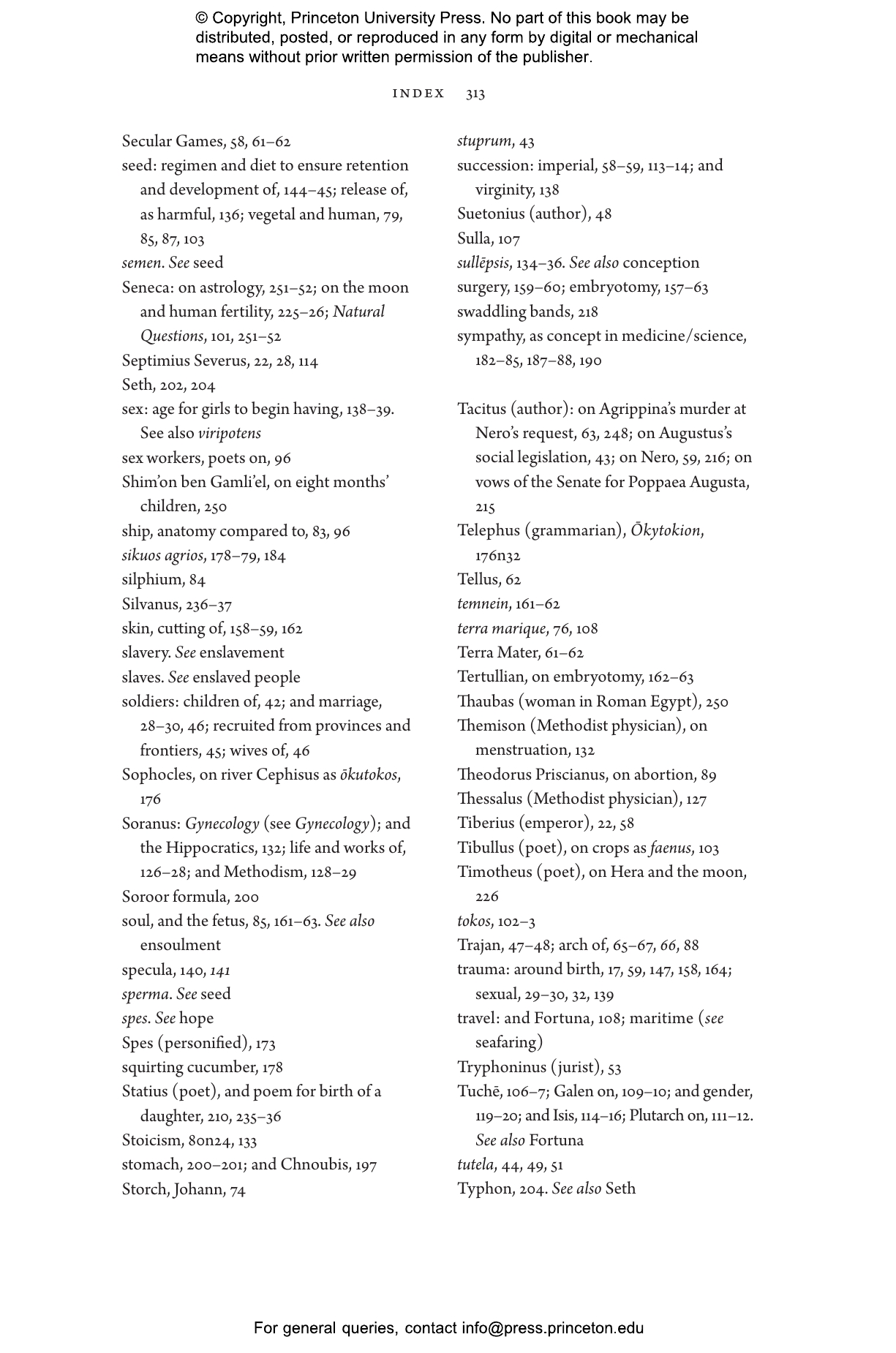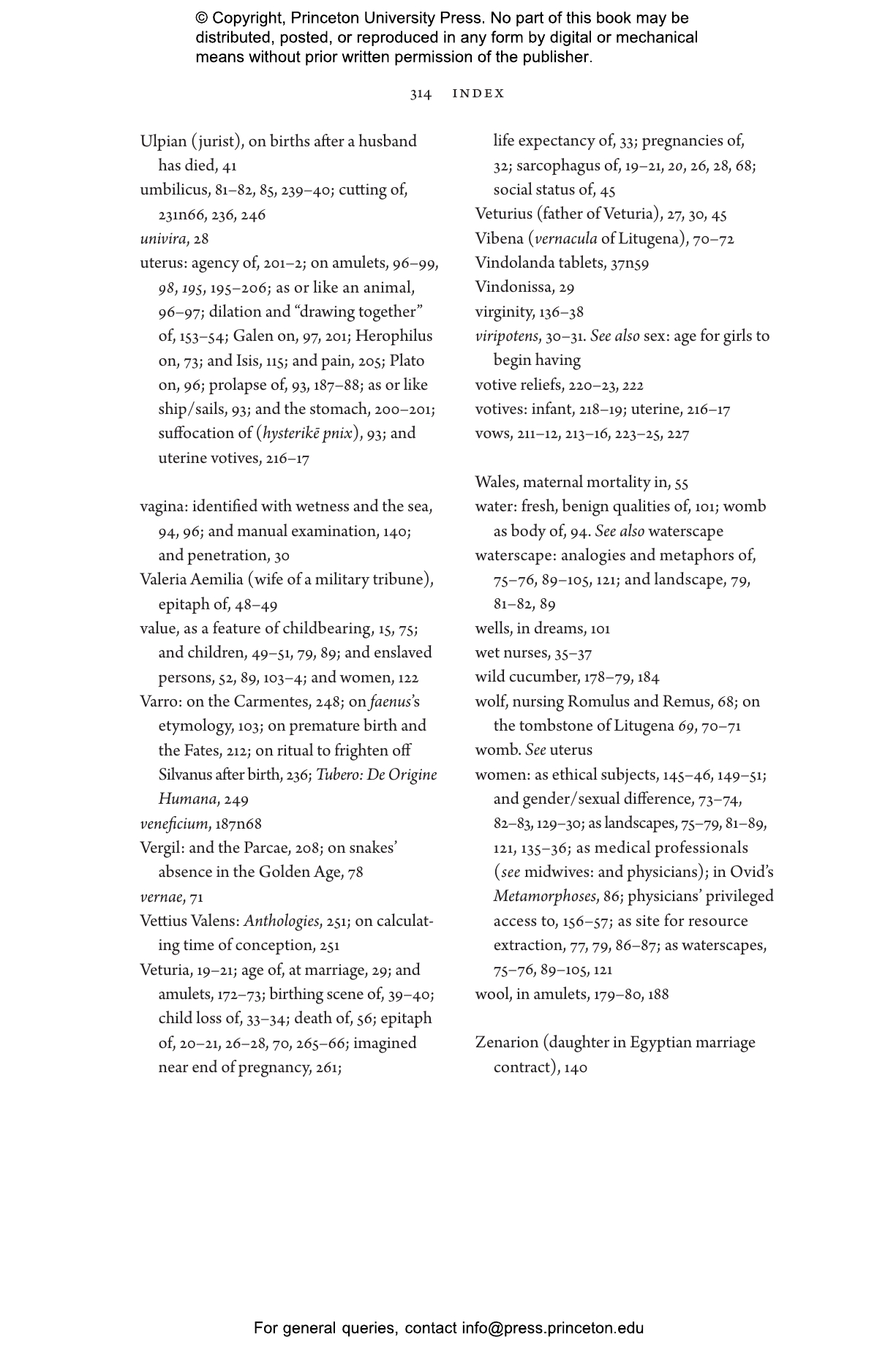Across the vast expanse of the Roman Empire, anxieties about childbirth tied individuals to one another, to the highest levels of imperial politics, even to the movements of the stars. Birthing Romans sheds critical light on the diverse ways pregnancy and childbirth were understood, experienced, and managed in ancient Rome during the first three centuries of the Common Era.
In this beautifully written book, Anna Bonnell Freidin asks how inhabitants of the Roman Empire—especially women and girls—understood their bodies and constructed communities of care to mitigate and make sense of the risks of pregnancy and childbirth. Drawing on medical texts, legal documents, poetry, amulets, funerary art, and more, she shows how these communities were deeply human yet never just human. Freidin demonstrates how patients and caregivers took their place alongside divine and material agencies to guard against the risks inherent to childbearing. She vividly illustrates how these efforts and vital networks offer a new window onto Romans’ anxieties about order, hierarchy, and the individual’s place in the empire and cosmos.
Unearthing a risky world that is both familiar and not our own, Birthing Romans reveals how mistakes, misfortunes, and interventions in childbearing were seen to have far-reaching consequences, reverberating across generations and altering the course of people’s lives, their family histories, and even the fate of an empire.
Anna Bonnell Freidin is assistant professor of history at the University of Michigan.
32551
"An important contribution to understanding the cycle of pregnancy, birth – and death – in which Roman women lived. The world of Veturia, and of her invisible sisters throughout the Roman empire, comes alive in its pages."—Helen King, Times Literary Supplement
"Birthing Romans is a compelling and powerful book"—Gaia Gianni, American Journal of Philology
"A new history of Imperial Rome that analyzes social hierarchy, imperial stability, and cultural continuity. . . . Birthing Romans broadens the understanding of Roman society by shedding light on an oftenoverlooked component of social engineering: childbearing."—Choice
"Birthing Romans: Childbearing and its Risks in Imperial Rome offers an in-depth analysis of how pregnancy and childbirth were understood in the Roman Empire. . . . [and] presents a cohesive argument of sufficient weight to become a key work in discussions of pregnancy, childbirth and risk management in ancient societies."—Helena López Gómez, Bryn Mawr Classical Review
"Bonnell Freidin has demonstrated the multileveled complexities of pregnancy and childbirth, from the individual to the social. This implies a new approach to already well-known facts of risks with childbearing in antiquity and presents an alternate way of writing ancient history."—Lena Larsson Lovén, American Historical Review
"Birthing Romans powerfully illustrates how birthing in Rome created indispensable networks, both human and non-human, influenced politics, and was fundamental to a vast and complex society. [It] is sure to become essential reading for students and scholars of Roman social, medical, and political history alike."—Sheena Finnigan, Continuity and Change
"A fresh approach. . . .Freidin’s use of every kind of evidence and generative methodology offers an enlivening perspective on birthing, the most critical process of Roman society and, thus, of Roman history."—Pauline Ripat, Current World Archaeology
“Birthing Romans offers a new framework for understanding Roman childbearing, showing how it opens a window into Roman constructions of identity, social status, freedom and enslavement, cultures of risk, and blame. Rarely have I encountered such sympathetic writing—Freidin truly conveys the beauty and tragedy inherent in childbearing and its complex interplay with parenthood.”—Laurence Totelin, editor of A Cultural History of Medicine in Antiquity
“Freidin offers an intimate, multidimensional, theoretically informed, and deeply sympathetic account of the childbirth experiences of Roman women during the first three centuries of the Common Era. This beautifully written book will become a canonical intervention in the cultural history of the Roman imperial period.”—Cam Grey, author of Constructing Communities in the Late Roman Countryside
No known hazards or warnings
Accessibility Features
-
Unknown accessibility
-
Table of contents navigation
-
Single logical reading order
-
Landmark navigation
-
Index navigation
-
All non-decorative content supports reading without sight
-
No known hazards or warnings


